The writing strikes me as a bit odd. It seems to jump around and focus at length on parts of the story that would otherwise be insignificant. I don't know yet what to make of it.

The writing strikes me as a bit odd. It seems to jump around and focus at length on parts of the story that would otherwise be insignificant. I don't know yet what to make of it.
“We overestimate what we can accomplish in a day but underestimate what we can accomplish in a year.'“
Chris Guillebeau
The earlier chapters had some interesting information about communication styles and gauging readiness, and the last chapter offered a list of offensive phrases to avoid. The written example of a bold conversation toward the end of the book didn't have much to offer. Ultimately, I think this book was written for white people as a way to ease us into the conversation very slowly.
Full review here - https://www.goodreads.com/review/show/4075059878.
Though listed as a movie in Hoopla, this is really more of a moving narration of the book. The illustrations are beautifully textured - hazy and dreamlike with small, but important, details - if a little blurry during the close-ups. I didn't feel particularly drawn to the narrator, so I'm thinking I would probably prefer the picture book to the movie/DVD version.
Full review here - https://www.goodreads.com/review/show/4366452325
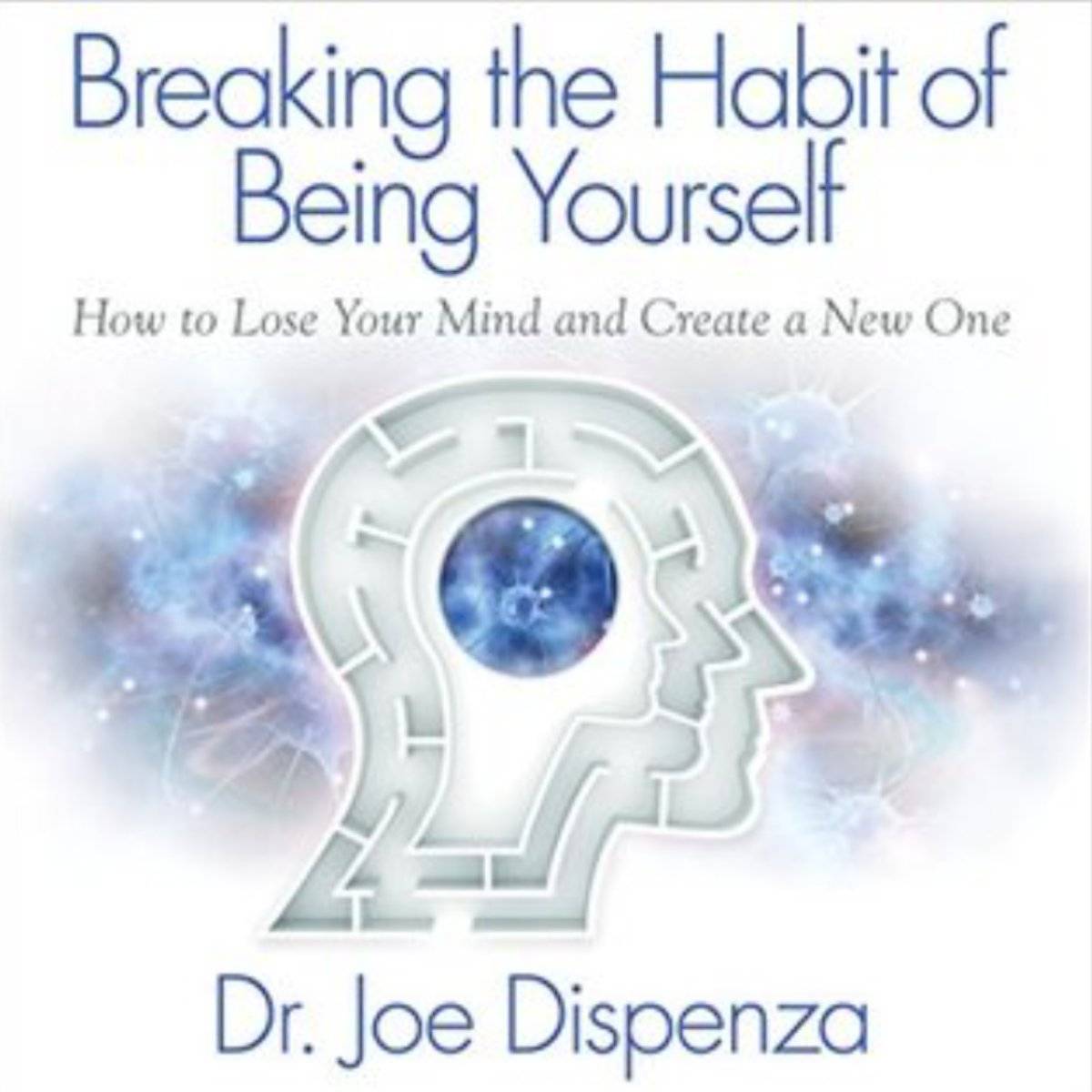
I wish I'd taken notes. The content seems to have completely vanished from my mind. Maybe that's telling. To be fair, I should say that the first third of the book did grab my attention. It was during the second part that I lost interest and kept getting distracted. The third section of the book might be helpful for those looking for a step-by-step guide to daily meditation practice.
Full review - https://www.goodreads.com/review/show/4208533291
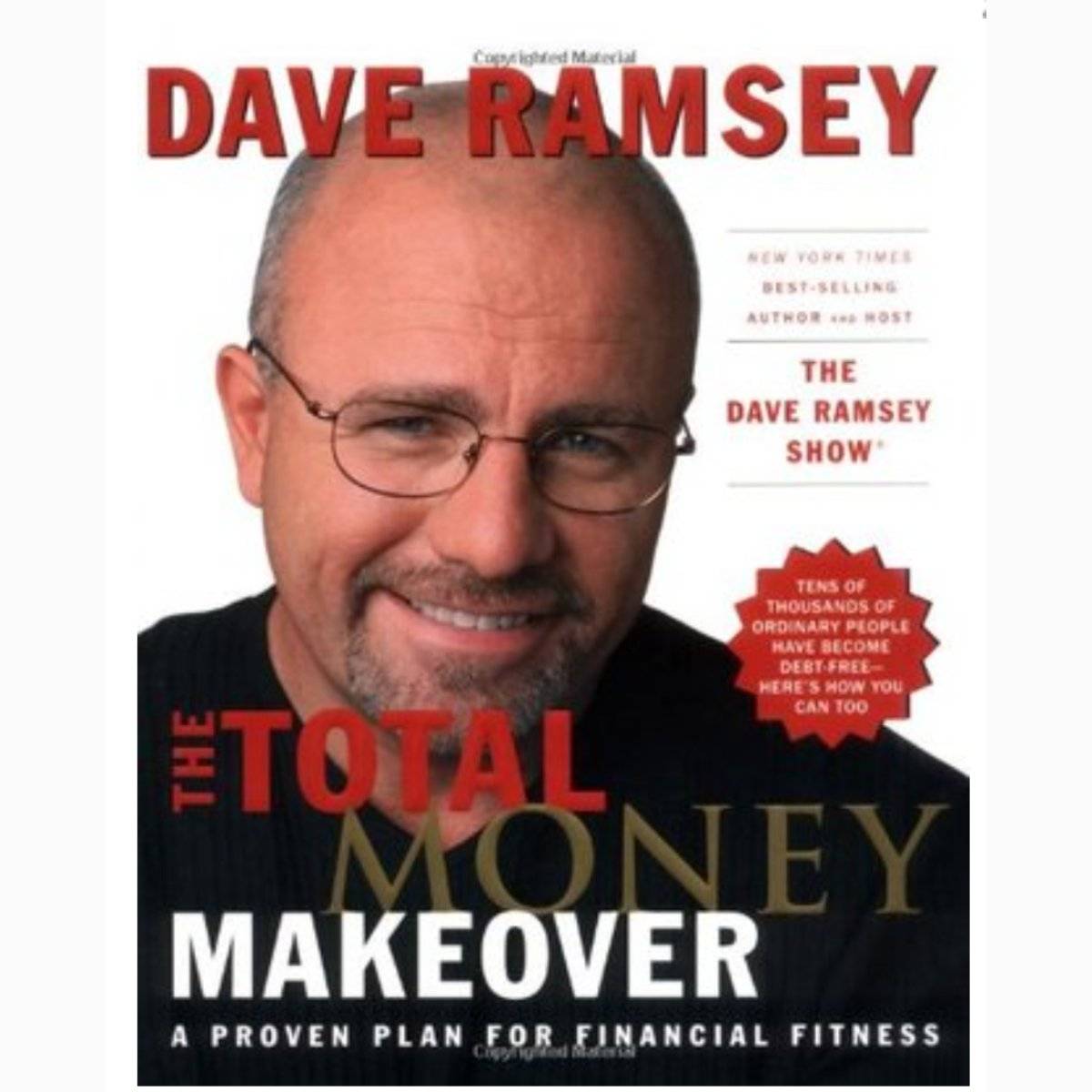
I don't doubt that Dave Ramsey's plan works. I think if I'd read his Baby Steps first, instead of the “motivational“ pep talk at the beginning, I would have enjoyed this much more than I did. I made it through about 80 pages and decided to skip the rest in favor of his budget app (which I like!). Unless you enjoy this kind of tough-love approach, that's what I would recommend.
Full review here - https://www.goodreads.com/review/show/4191025413.
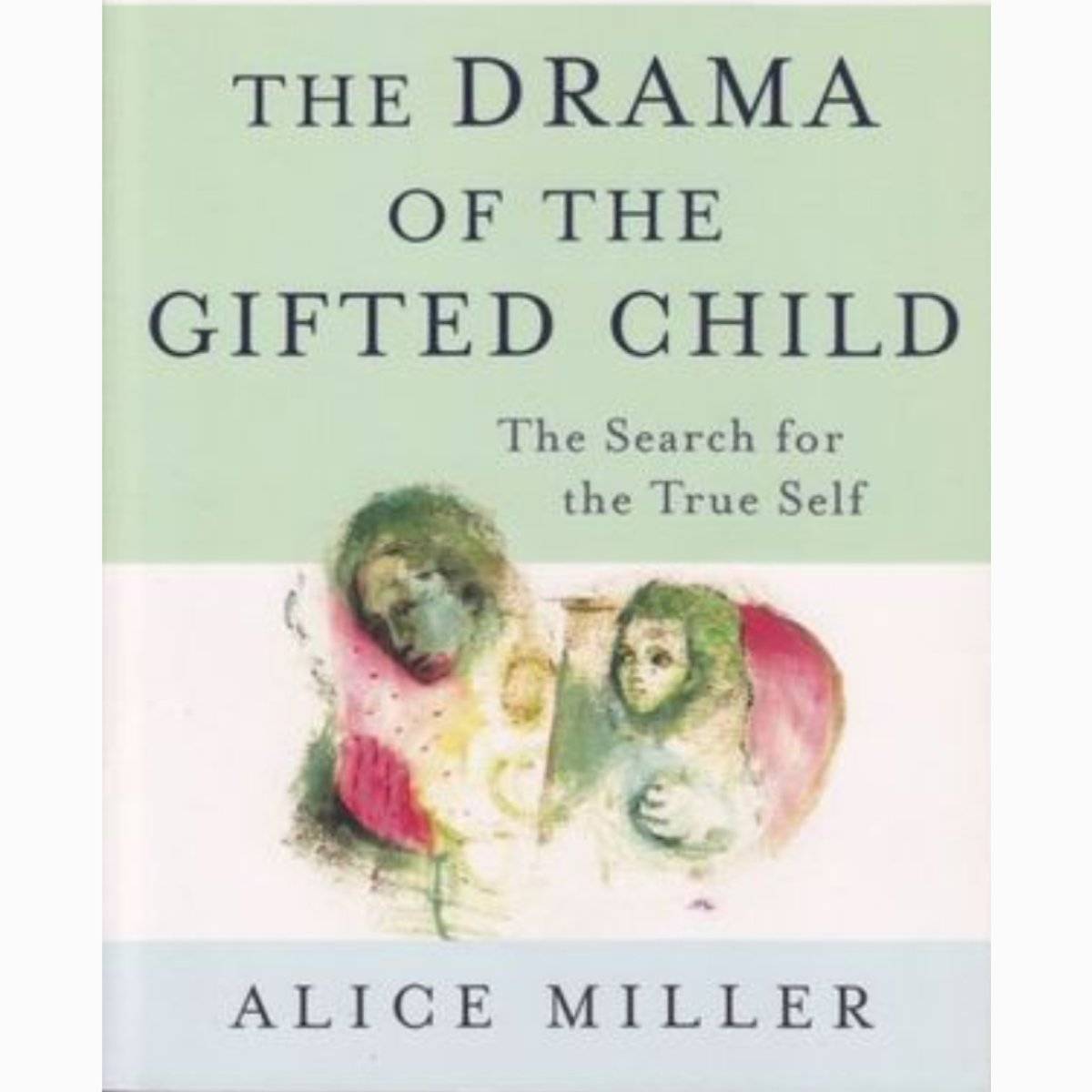
As children, our survival depends upon the love or rejection of our parents. We protect ourselves by conforming, by being “good“. The only way to break the cycle is to acknowledge and feel what we've been through.
I could relate to this as I was reading it, but I can't say there was any good advice that might help a former “gifted child“ navigate their world later as an adult.
Full review here - https://www.goodreads.com/review/show/4082454621.
“Remember, I have been broke twice in my life, but never poor; poor is a state of mind.“
Tell us more about all that privilege, Dave. Should someone have a different experience than smart, rich, diligent Dave then they are simply “not smart people.“ His way is the only way that works and he reminds us repeatedly. I hope the tips at the end of the book are worth all this mess at the beginning.
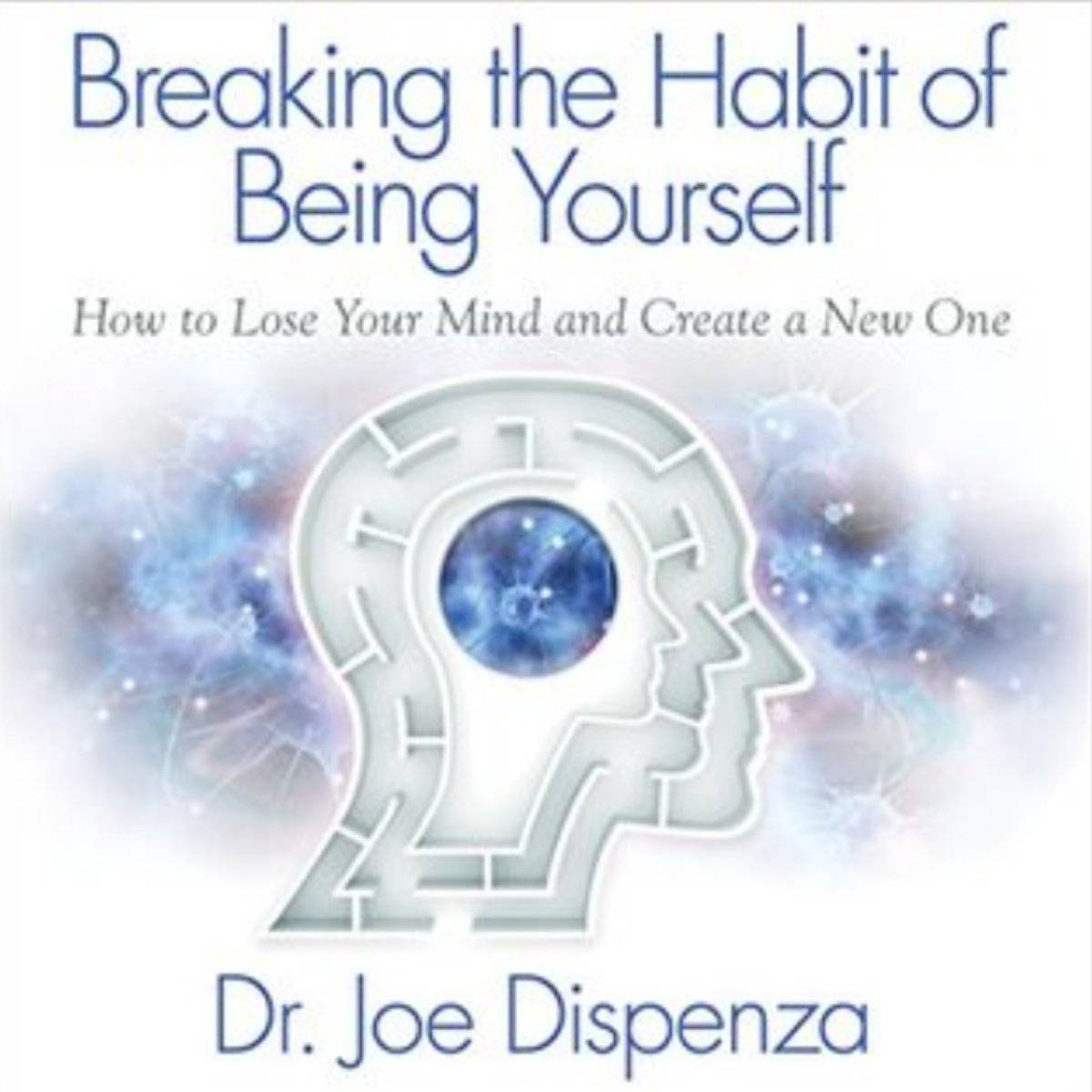
I wasn't sure about this one going in, but I've heard a lot about Joe Dispenza so I thought I'd give one of his books a try. I was worried the science would go over my head and be hard for me to grasp, especially through an audiobook where I couldn't take more time to look over the material, but he explains everything really well. I'm finding myself becoming more and more interested as it goes along!
The introduction says this book is not politically correct, so Ramsey's given himself permission to be offensive if he feels the need. I can't say I've seen anything that's offended me yet, but all the talk about being “financially fat“ is getting tiresome. This book was written nearly 20 years ago though, and I was weight-obsessed back then too. Hello, South Beach Diet!
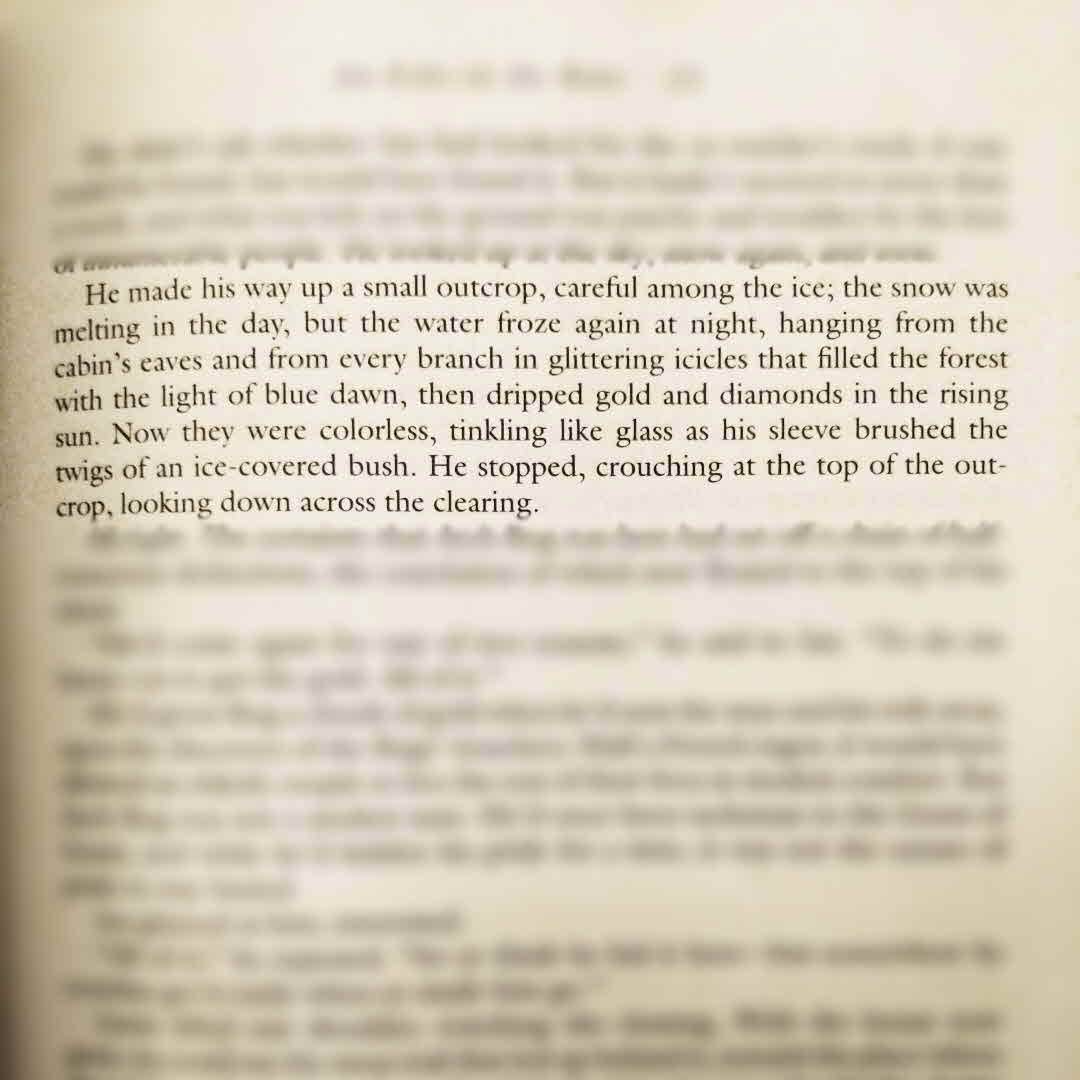
Again with those beautiful descriptions. Must be some of my favorite parts of the books. ✨
“Your career should be aligned with your overall goals. Your work should feel like an integrated and supportive force in your life, not the kind-of-awful-thing-you-have-to-do-to-pay-the-bills.“
Wapnick talks about life design vs. career planning. According to interviews she conducted, thriving multipotentialites (“people who display aptitudes across multiple disciplines“) shared three things in their life designs - money, meaning, and variety.
“The more you allow yourself to explore, draw connections between different ideas, dream up big projects, and collaborate with others, the stronger your superpowers will become.“
“The truth is that you aren‘t lacking a destiny or purpose. There is a very good reason for your insatiable curiosity: you‘re someone who‘s going to shake things up, create something novel, solve complex, multidimensional problems, make people‘s lives better in your own unique way. Whatever your destinies are, you can‘t step into them while stifling your multipotentiality. You must embrace it and use it.“
“Multipotentialites tend to struggle with three main areas: work, productivity, and self-esteem.”
WORK - “How the heck will I make a living?“
PROCRASTINATION - “How do you deal with the internal muck (procrastination, self-doubt, overwhelm, and chronic e-mail checking) that can prevent you from moving forward with your goals?“
SELF-ESTEEM - “. . . guilt about the inability to choose or about changing directions.“
Guilt, fear, insecurity. YES.
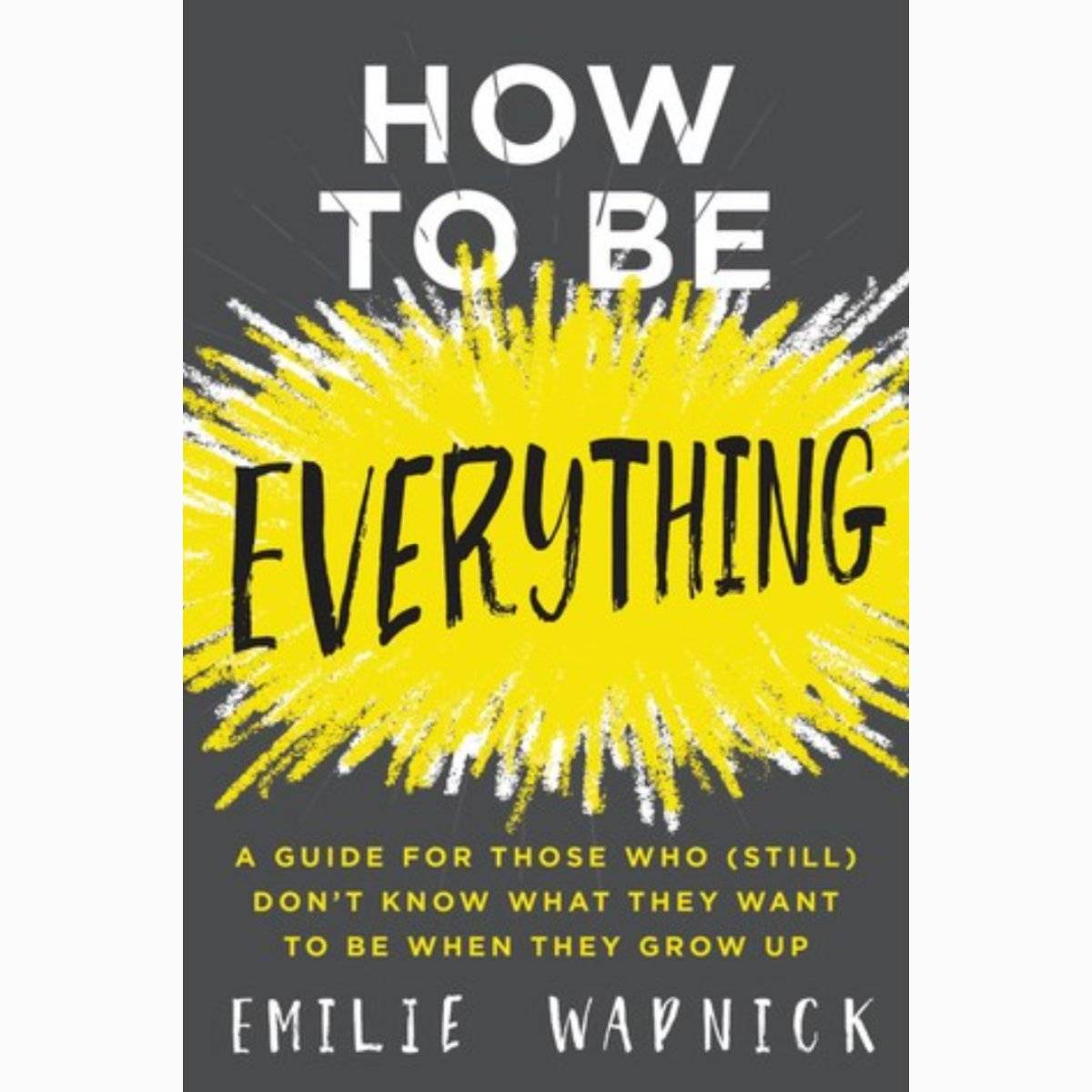
I can't remember how I first heard of Emilie Wapnick, but I know I decided to read her book after listening to her TED talk (link below for those interested). I'm one of those individuals she references on the cover of her book - I still don't know what I want to be when I grow up. I'm 36. Well, almost 37. The first chapter - “There Is Nothing Wrong with You.“
https://www.ted.com/talks/emilie_wapnick_why_some_of_us_don_t_have_one_true_call...
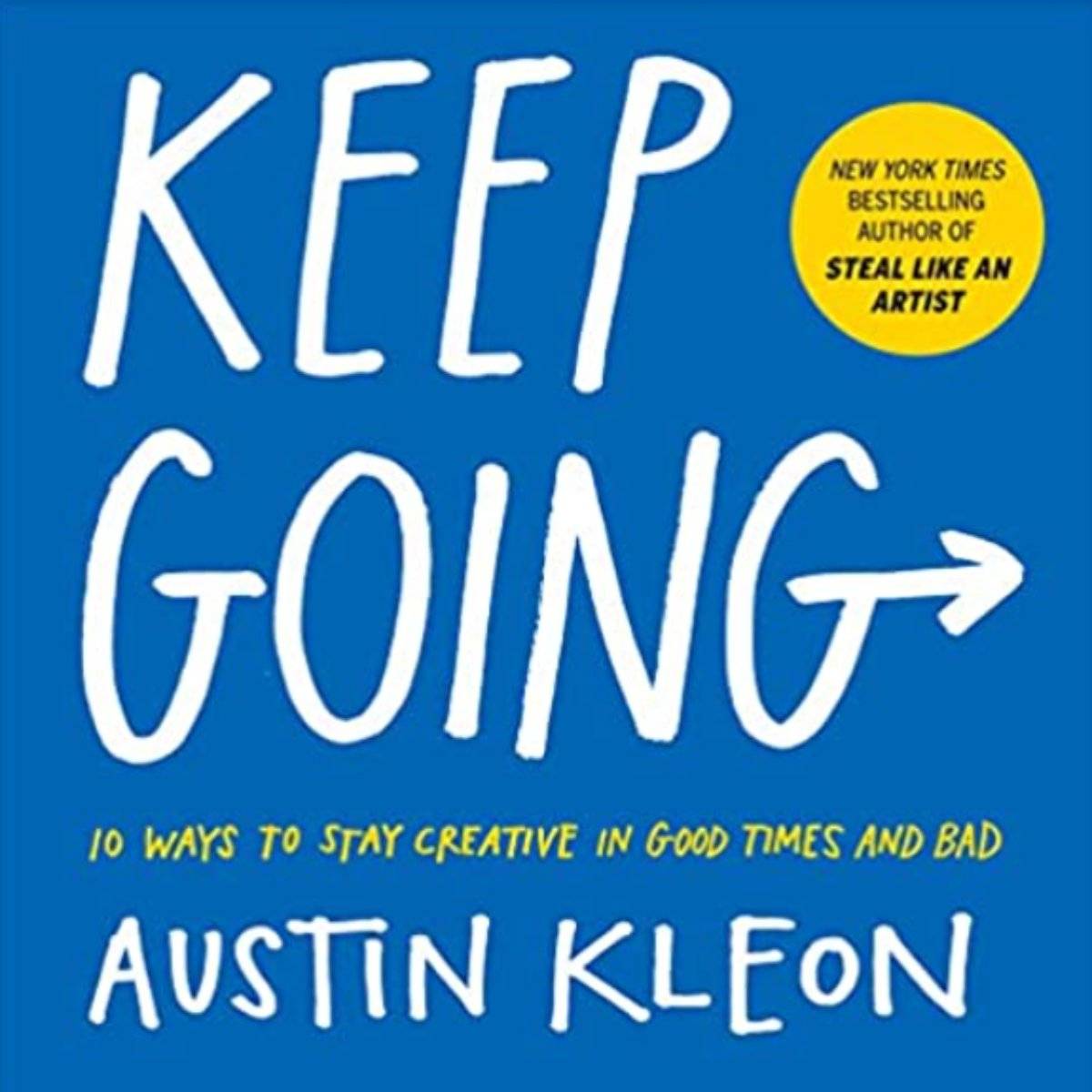
Keep Going shares practical tips to keep the creativity flowing when your days start to look and feel the same. Kleon says in the very beginning that he wrote this book because he needed to read it. There are some small but helpful ideas here - tidy up, change your mind, create a “bliss station“ for your work, etc. I enjoyed this book more than the second one, though the first is still my favorite (if only because it felt original at the time).
The last chapter, Plant Your Garden, may be my favorite in the book. The author says, “Our lives too have different seasons.“ Some of us “blossom“ when we are young and some of us when we are older. Society tends to favor the young, but Kleon is inspired by “the people who found the thing that made them feel alive and who kept themselves alive by doing it. The people who planted their seeds, tended to themselves, and grew into something lasting.“
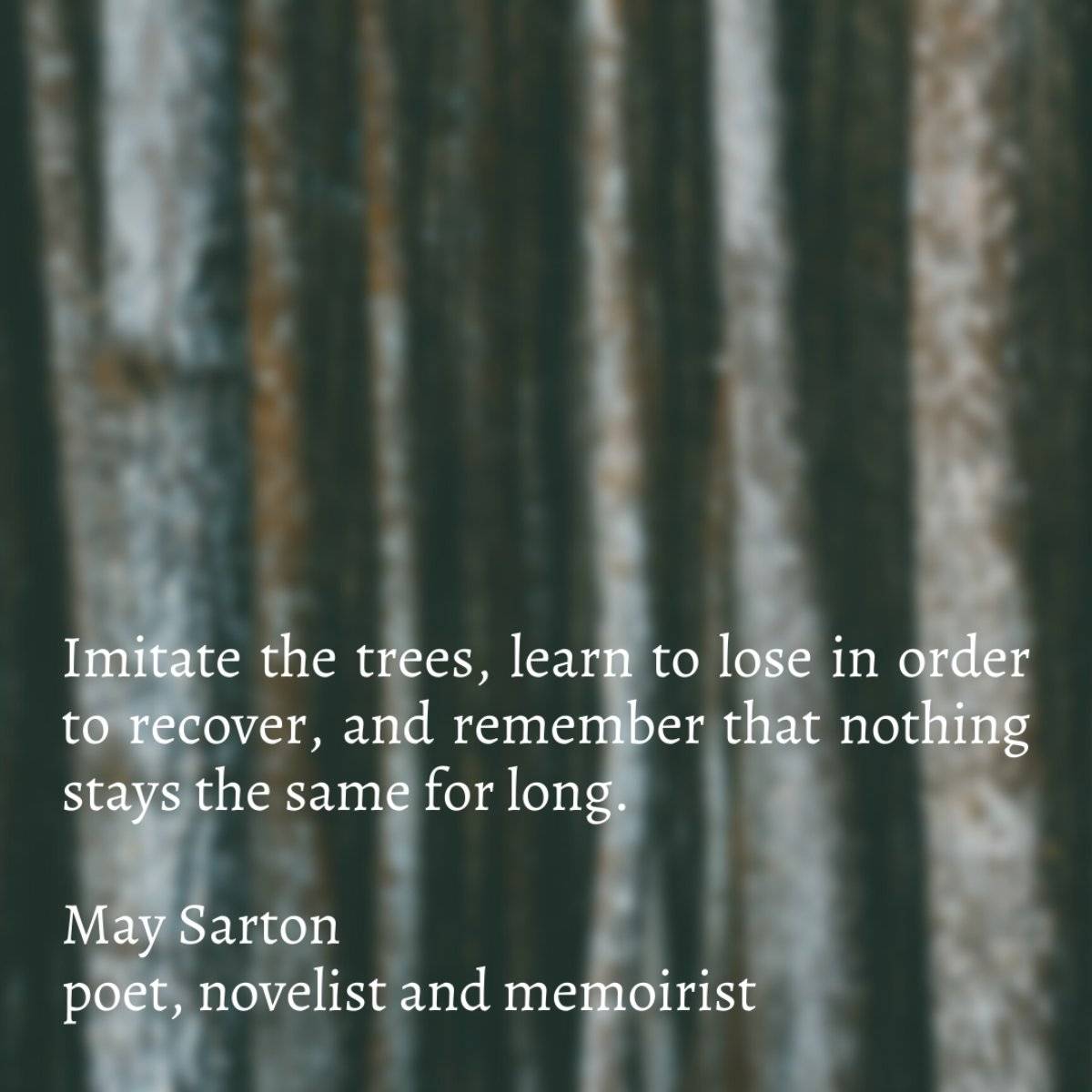
“Imitate the trees, learn to lose in order to recover, and remember that nothing stays the same for long.“
May Sarton, Belgian-American poet, novelist and memoirist
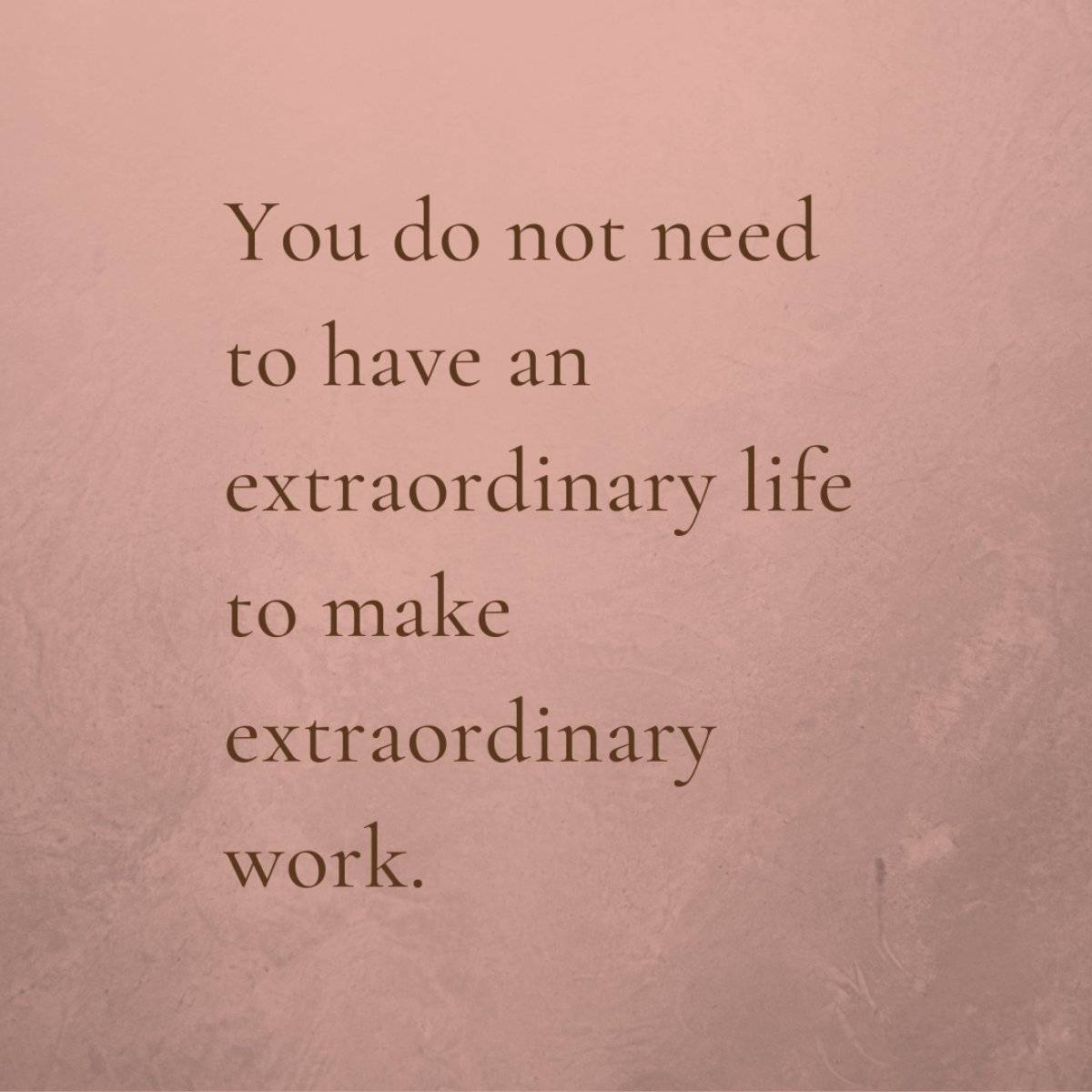
“You do not need to have an extraordinary life to make extraordinary work.“
Thank goodness for that! 👏
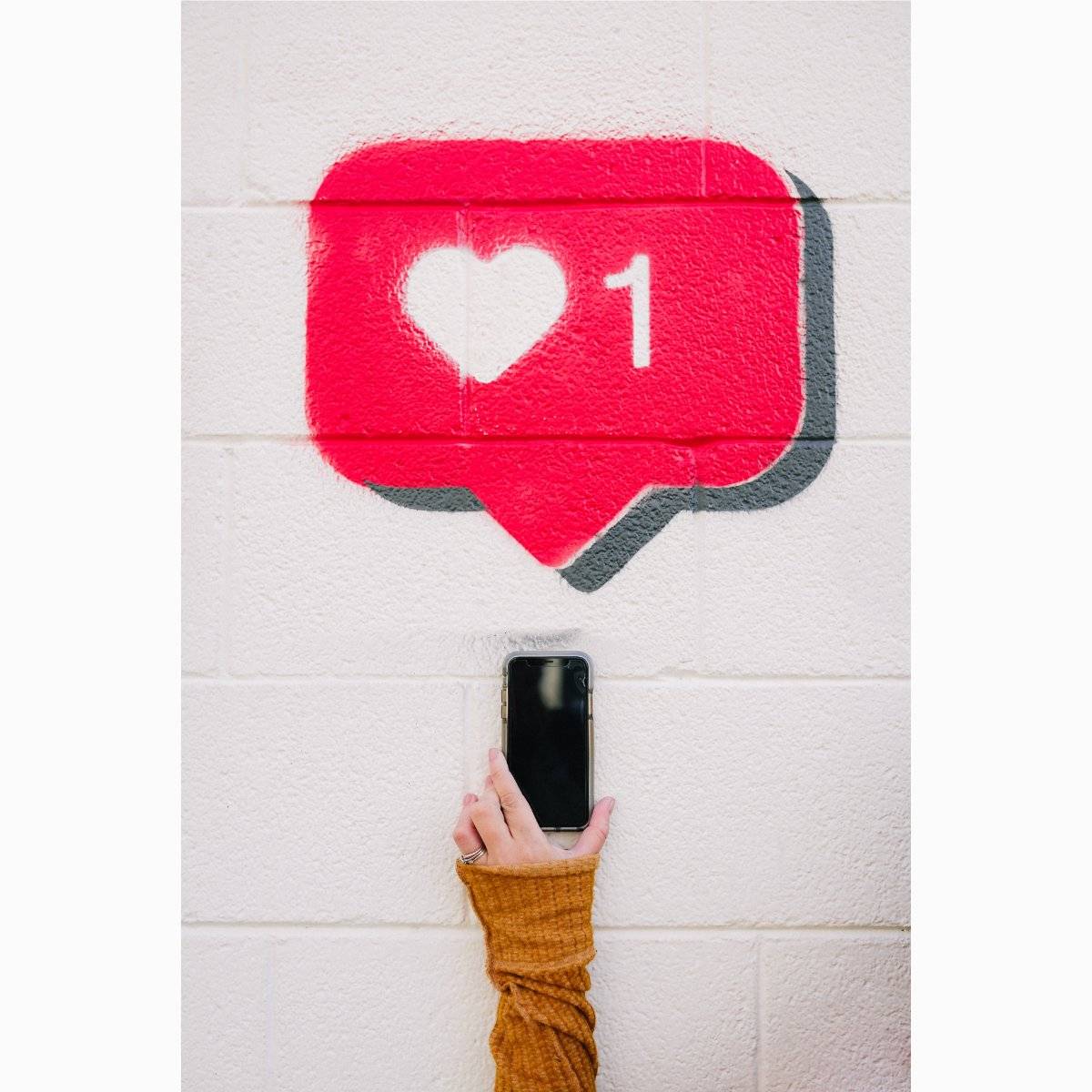
In the second book of his trilogy, Kleon stresses that if your work isn't online then it doesn't exist. In the third book, he advises us to ignore likes, shares, and followers. Those metrics are shallow, he says, and shouldn't be used to decide what to focus our work on next. According to Kleon, “. . . everything online is now click-bait, optimized for the short attention span.“ Do we share and let it be?
Photo by Karsten Winegeart on Unsplash.
“I so desperately wanted to be loved --- and that meant, of course, to comply, to be obedient.“ - Vera, age fifty-two
It seems to me that if there were ever to be any form of unconditional love, that it should come from one's parents. Those evolutionary inclinations to see an offspring reach adulthood and all that. Though I suppose that doesn't really require love, does it? When it doesn't, sometimes it's safer to obey than to risk all you know.
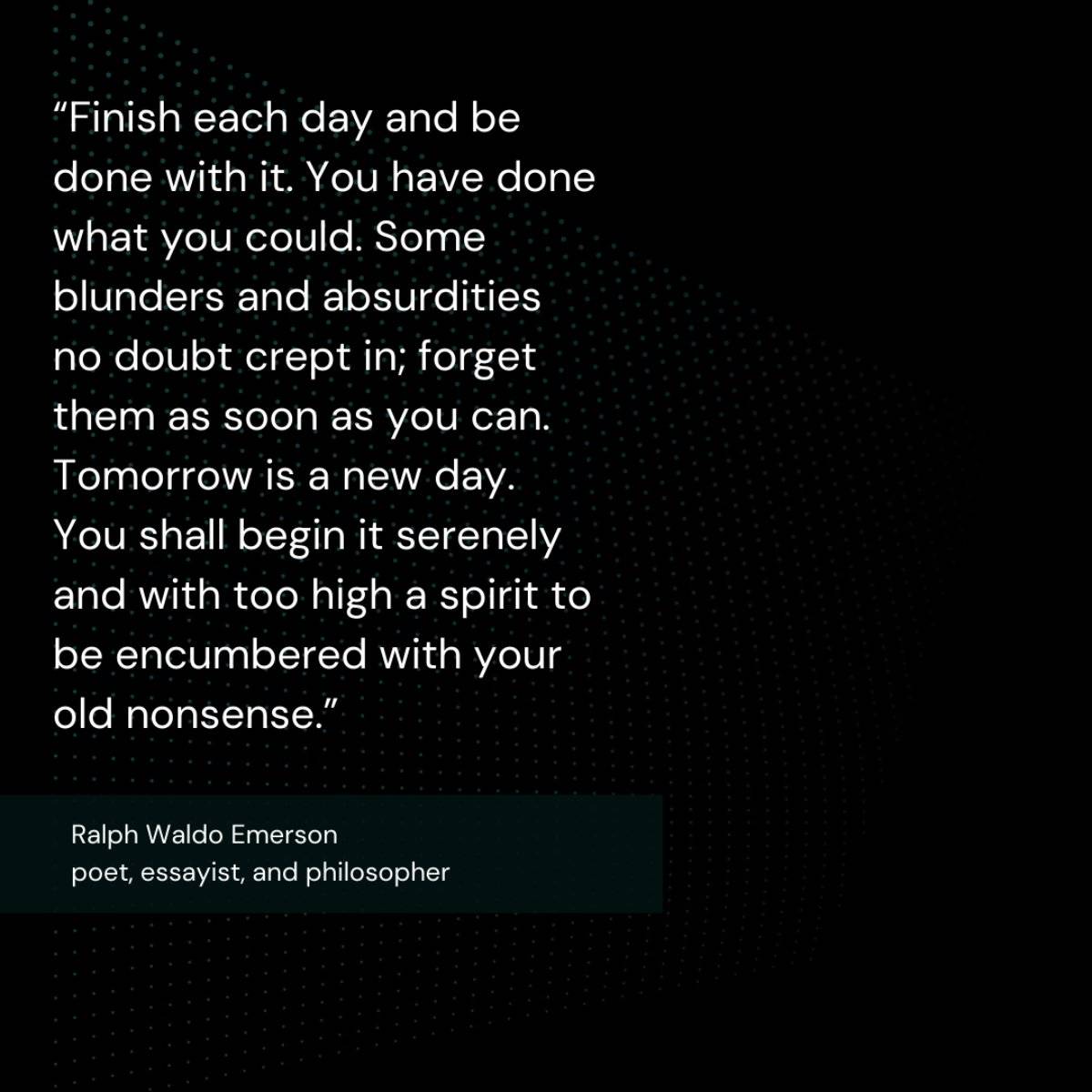
“Finish each day and be done with it. You have done what you could. Some blunders and absurdities no doubt crept in; forget them as soon as you can. Tomorrow is a new day. You shall begin it serenely and with too high a spirit to be encumbered with your old nonsense.”
― Ralph Waldo Emerson, American poet, essayist, and philosopher
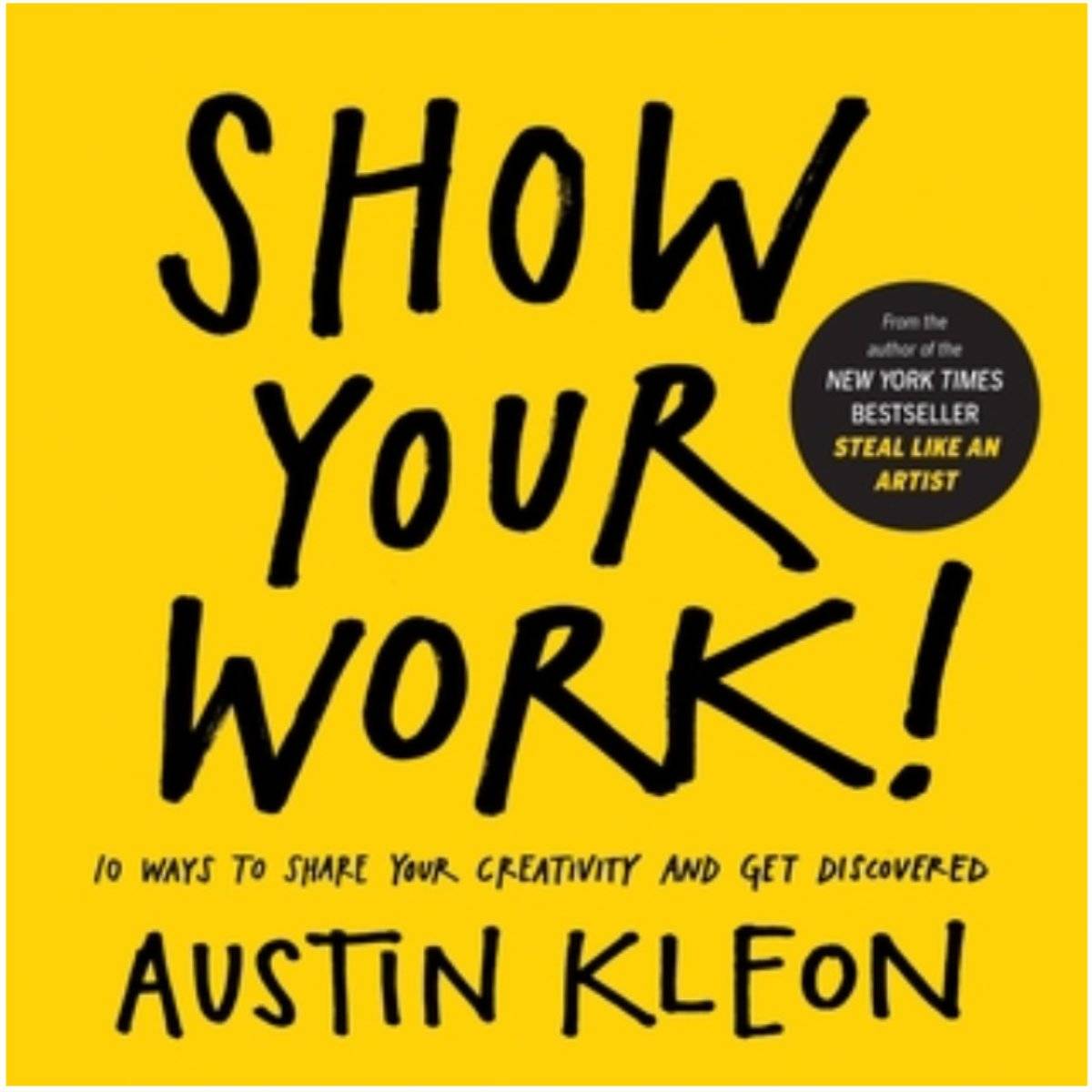
This book is written similarly to the first one. There are a lot of quotes. I didn't find it to be as inspiring, and there wasn't anything profound in the way he suggests getting discovered. Basically, work non-stop and share everything. There were some practical tips - share online, find a domain name, send a newsletter. There were also some tips that didn't appeal to me, namely finding a “scenius“ and reading the obituaries every morning.
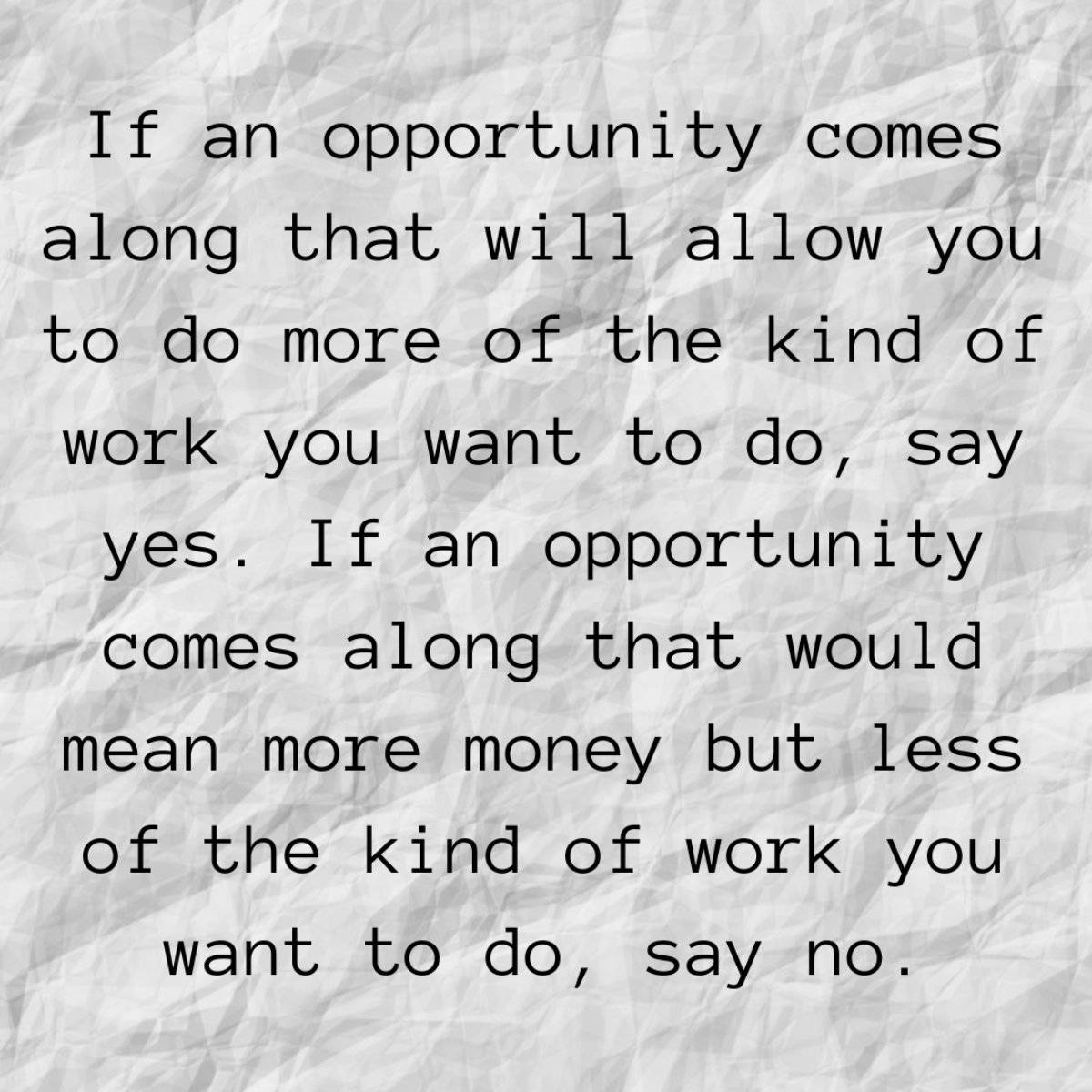
“If an opportunity comes along that will allow you to do more of the kind of work you want to do, say yes. If an opportunity comes along that would mean more money but less of the kind of work you want to do, say no.“
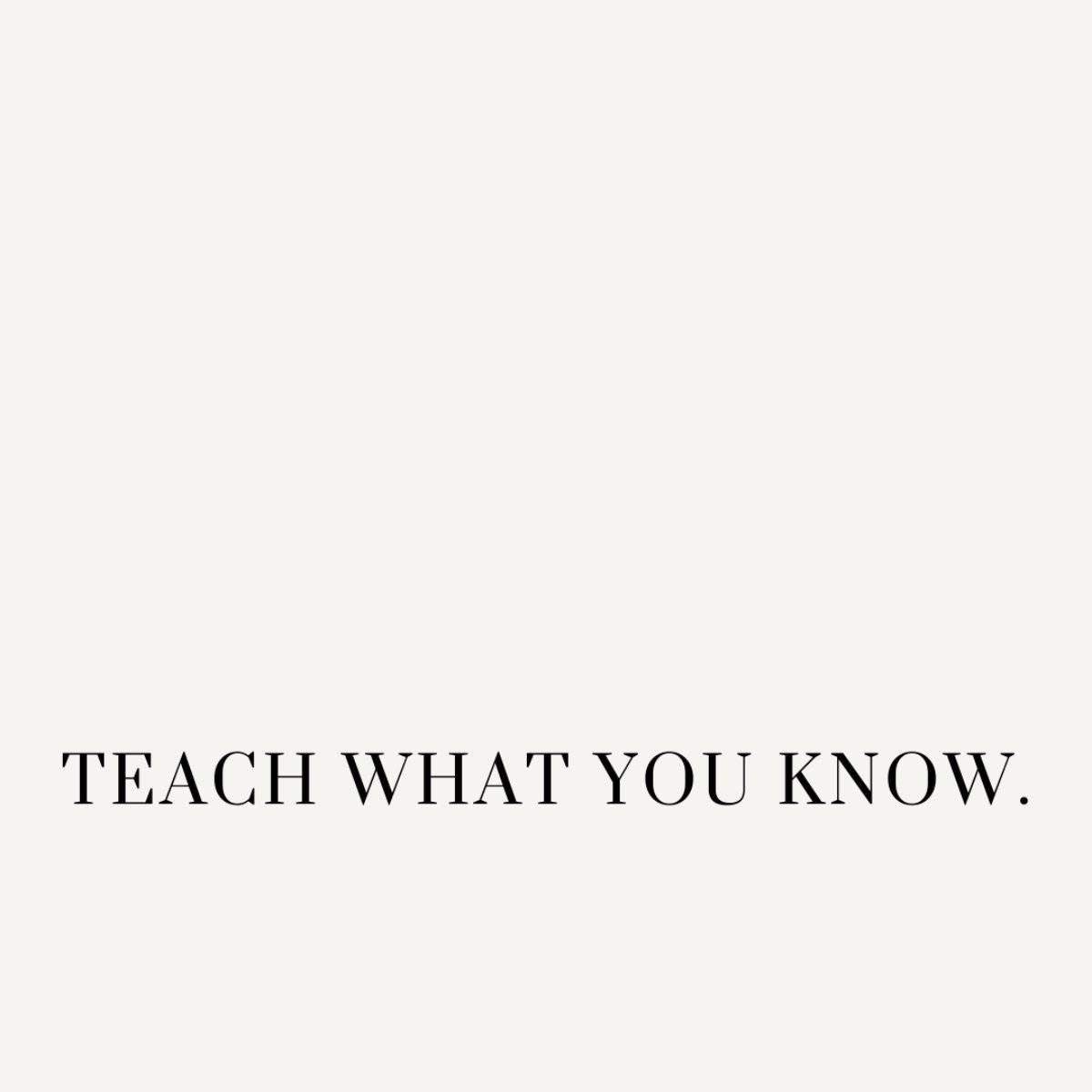
“Teach what you know.“
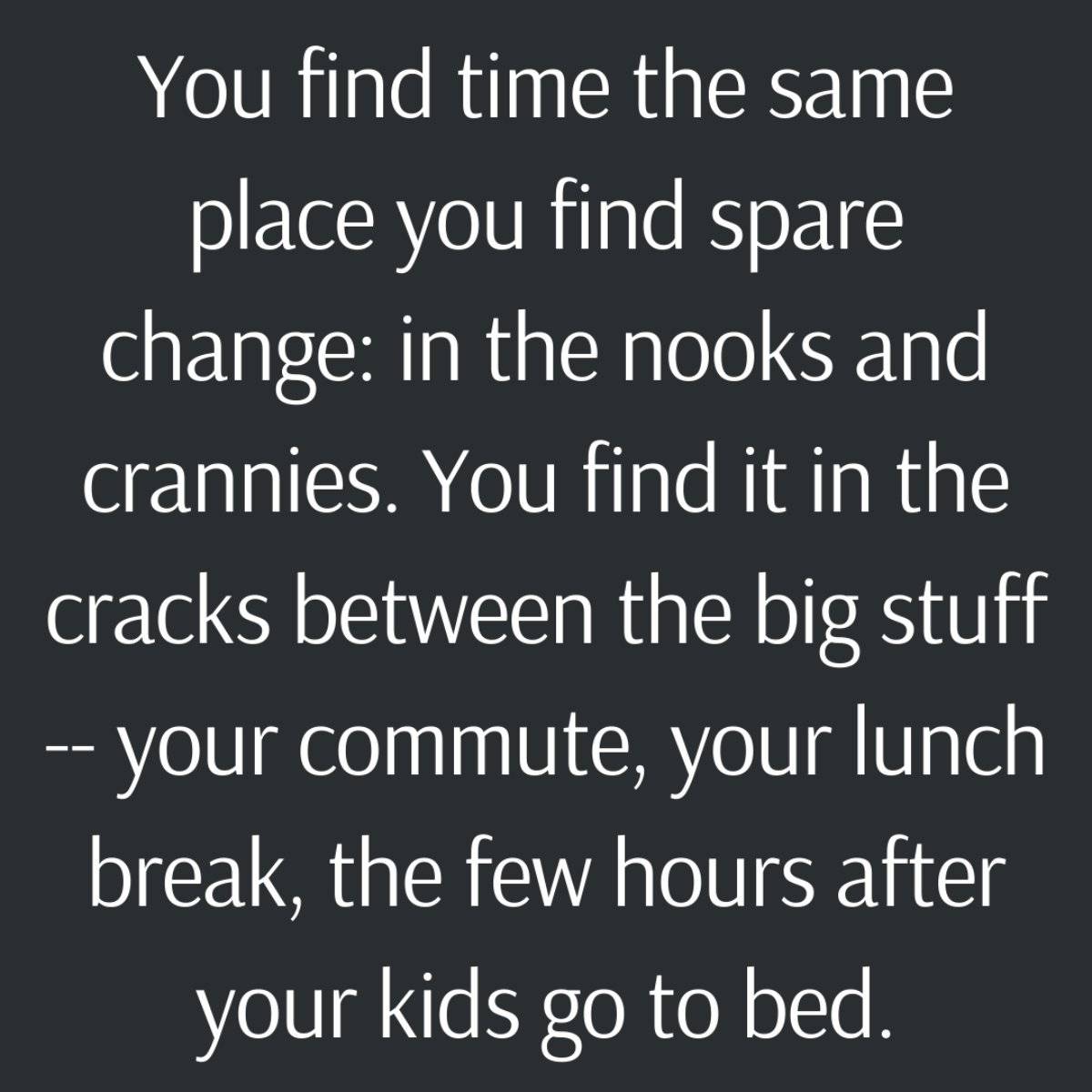
“You find time the same place you find spare change: in the nooks and crannies. You find it in the cracks between the big stuff—your commute, your lunch break, the few hours after your kids go to bed.“
Earlier in this section, Kleon says we all get 24 hours a day. Basically, no excuses. I don't buy into that. We're all living in different situations under different circumstances. I do like the idea of “finding“ time in the little nooks of life.
“Social media sites are the perfect place to share daily updates.“
This book was originally published in 2014. The author gives this list of the preferred social media sites for different groups. Agree? Disagree? What's missing seven years later? I would add TikTok for visual artists. LinkedIn for business people stills stands. 😀
Filmmakers: Youtube, Vimeo
Business people: LinkedIn
Writers: Twitter
Visual Artists: Tumblr, Instagram, Facebook
“If you're in the very early stages, share your influences and what's inspiring you. If you're in the middle of executing a project, write about your methods or share works in progress. If you've just completed a project, show the final product, share scraps from the cutting room floor, or write about what you learned.“
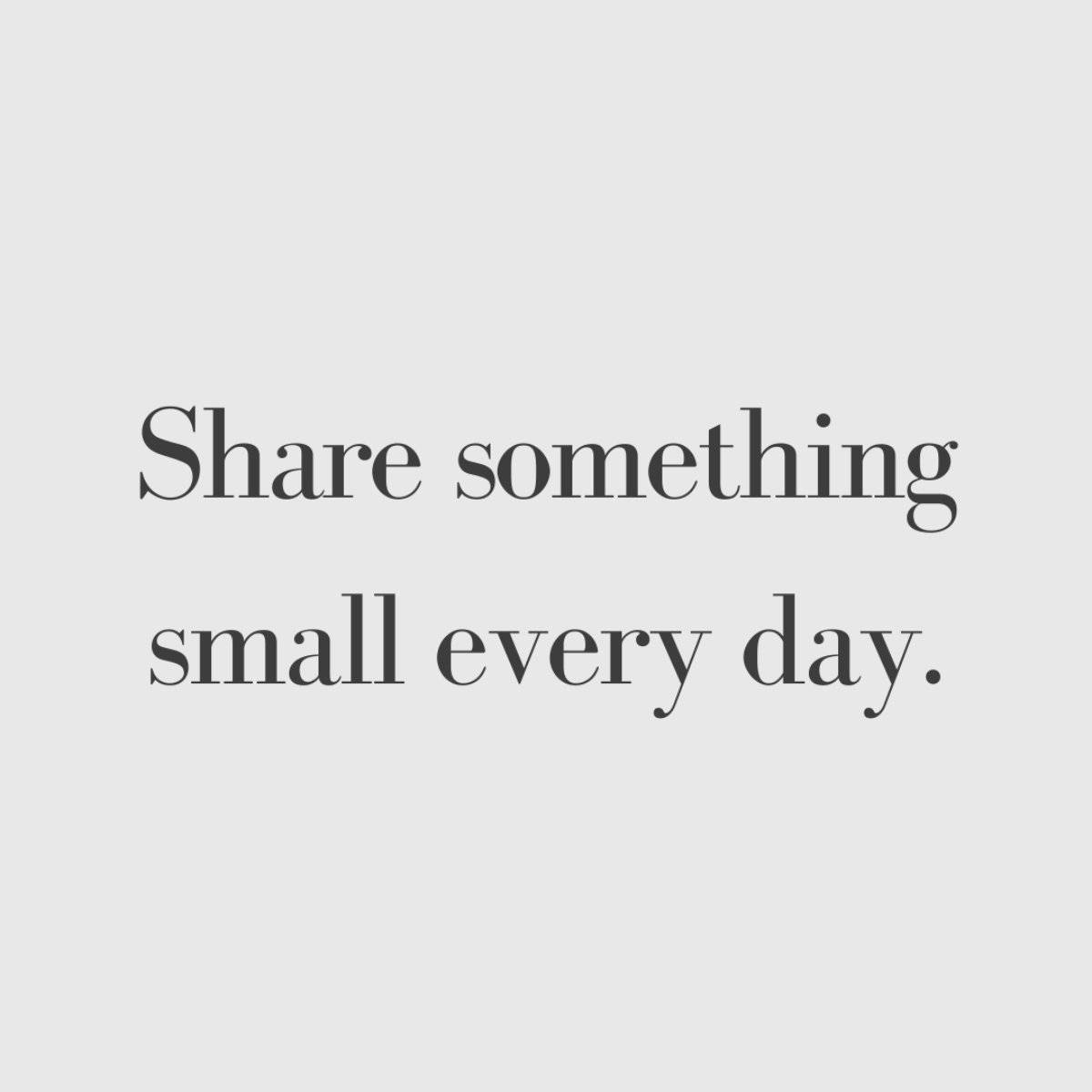
“Share something small every day.“
The author says that if your work isn't online then it doesn't exist. I'll admit, that stings a little. It makes me feel a bit defensive even. I'm on most social media sites, like most people, and I've shared bits and pieces here and there. Granted, I've dabbled in all sorts of ventures and nothing's really stuck. Maybe that's the problem. If the only way to be seen and heard is online, specifically via social media, I really should figure it out.
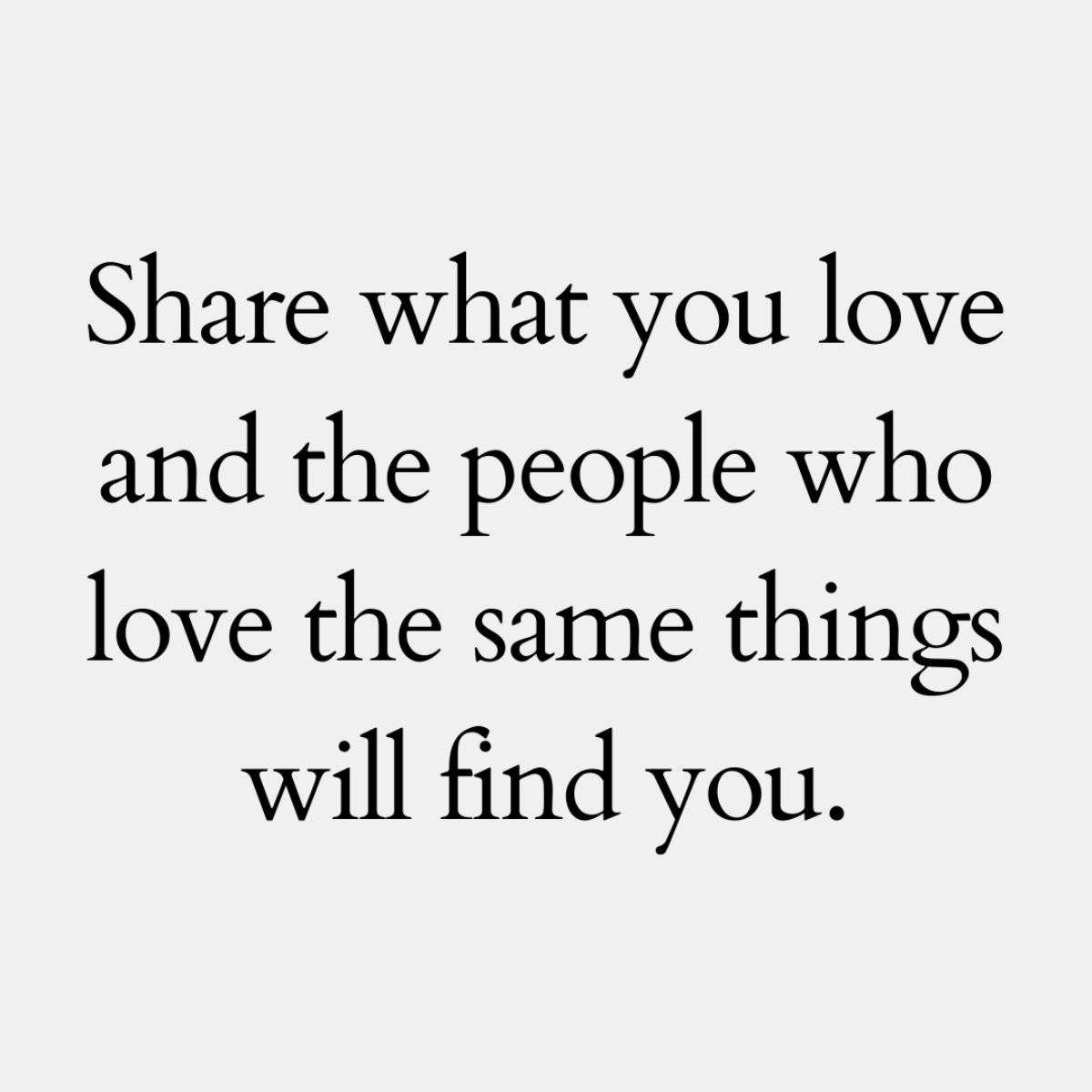
“Share what you love and the people who love the same things will find you.“
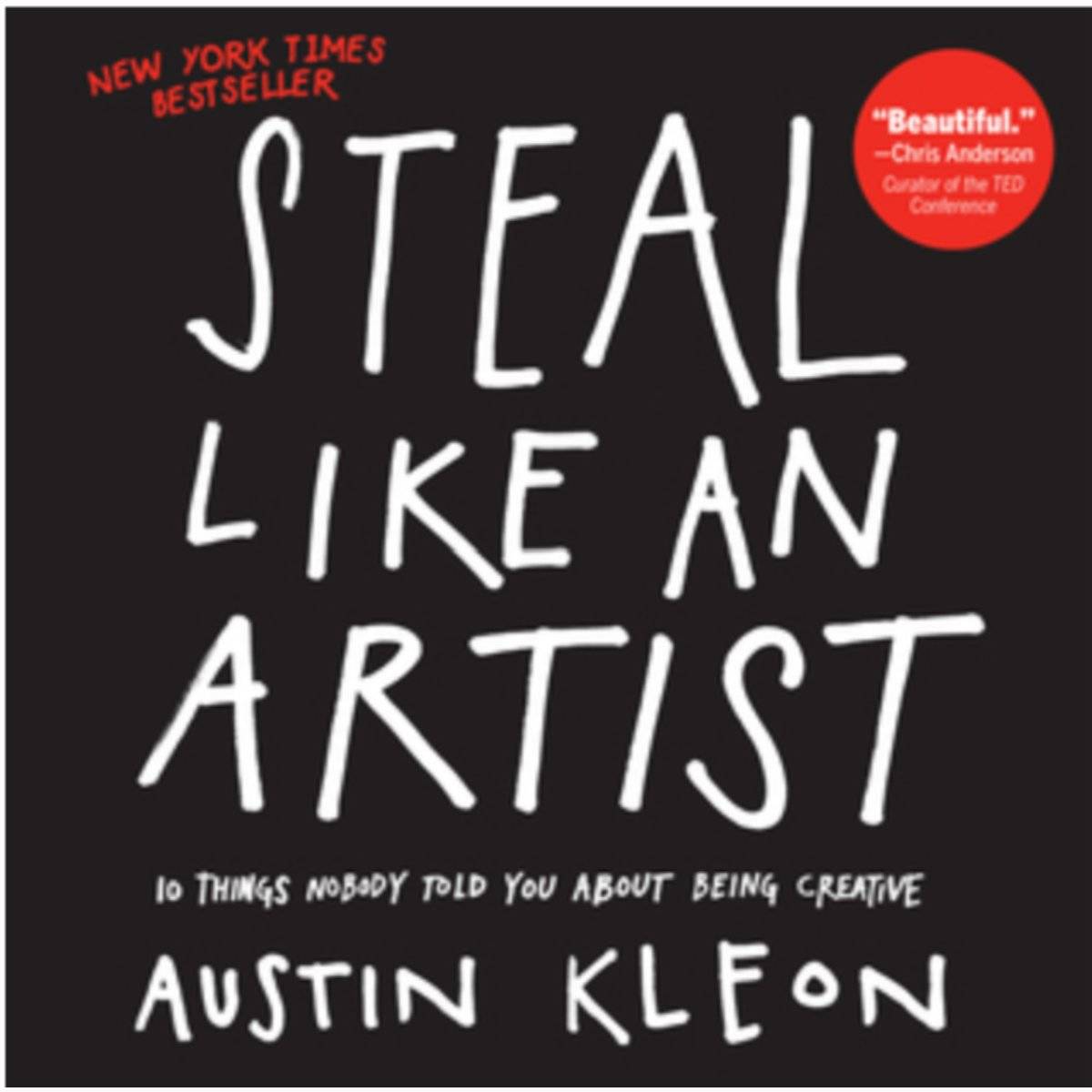
I'm listening to the trilogy, but I just finished the first book. It was an inspiring read filled with quotes from influential people. There was just one section that put me off. Kleon talks about the importance of keeping a day job and working relentlessly without breaks, through holidays and sick days. For someone with chronic illness, this is disheartening and unreasonable. The book was written years ago, but I'm just so over hustle culture.
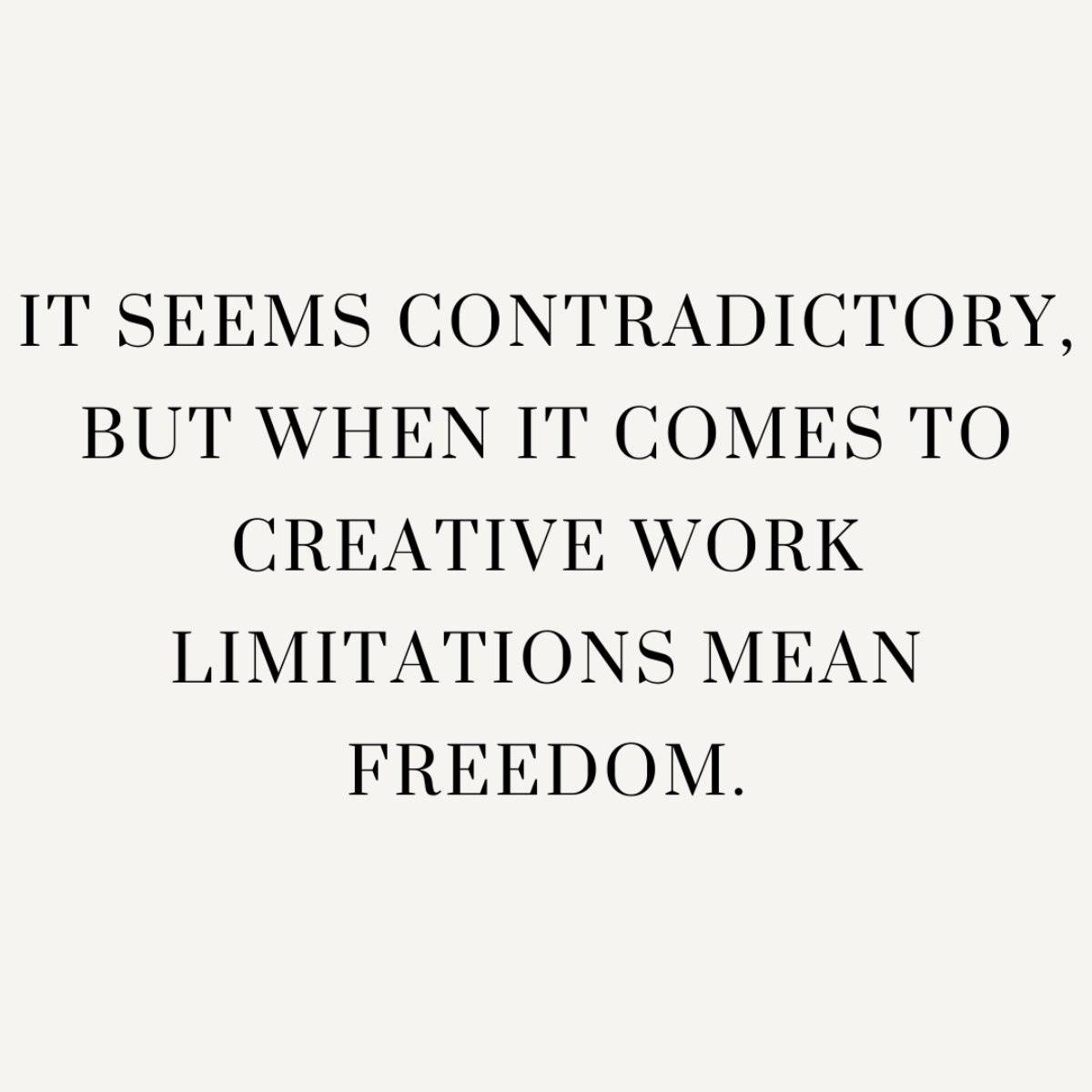
“It seems contradictory, but when it comes to creative work limitations mean freedom.“
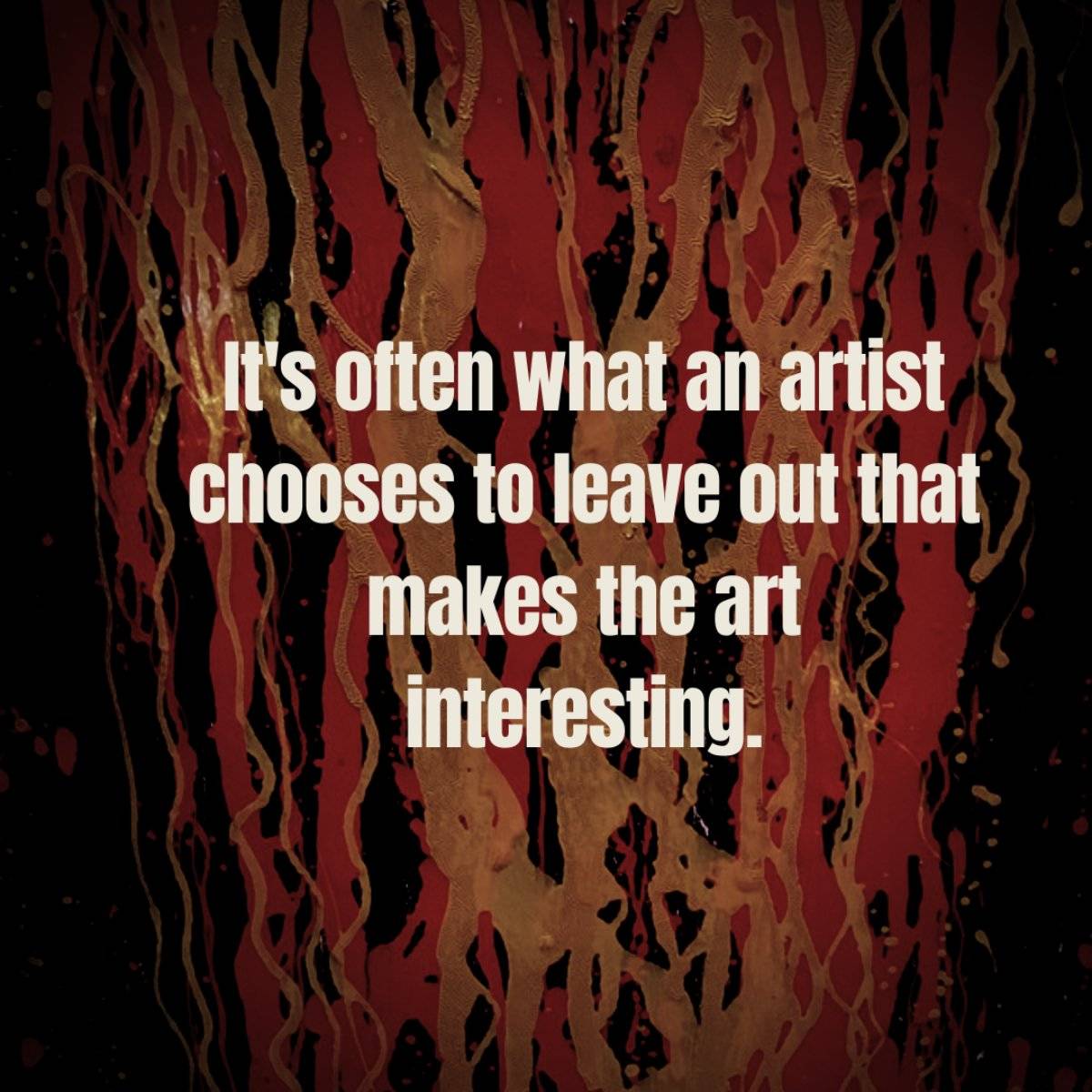
“It's often what an artist chooses to leave out that makes the art interesting.“
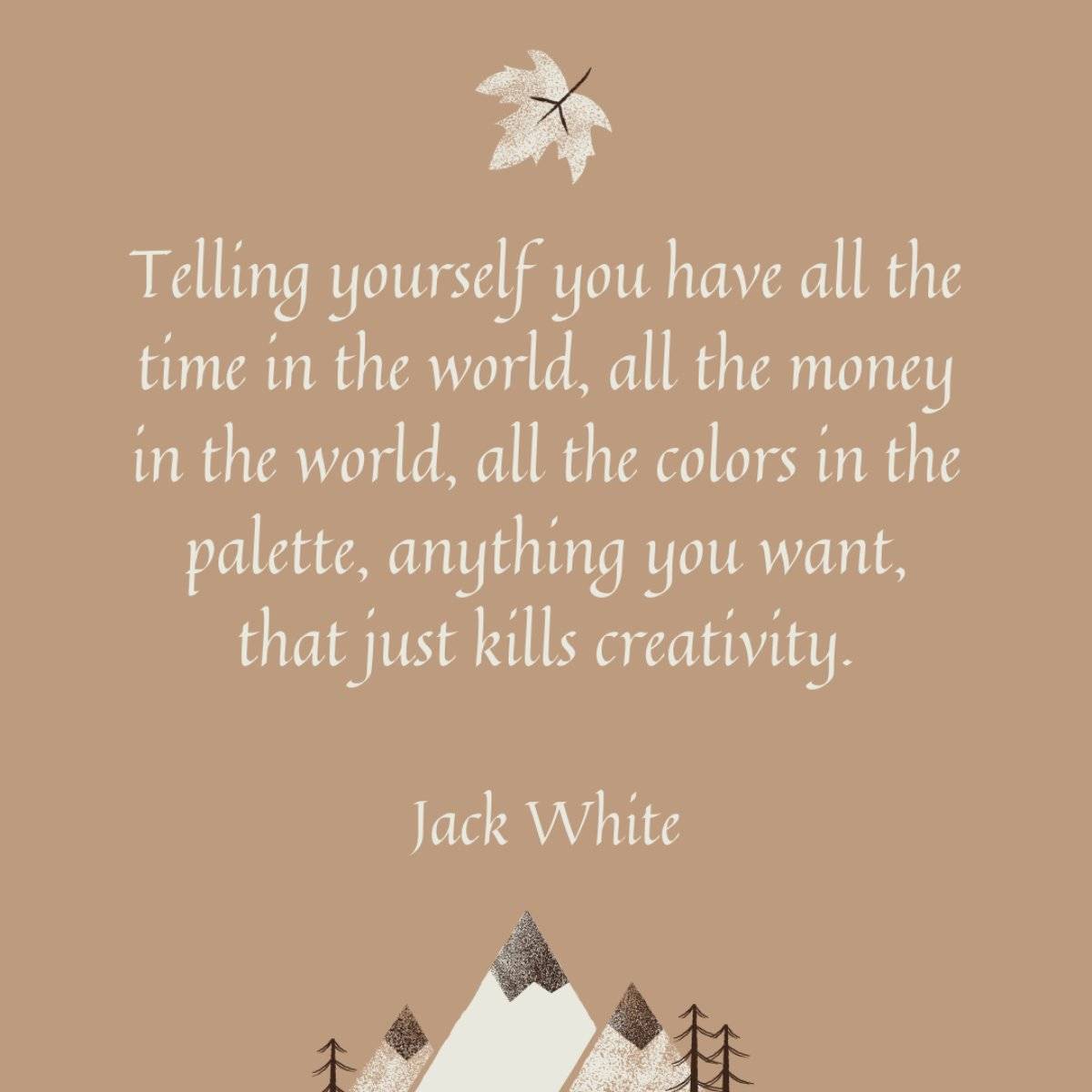
“Telling yourself you have all the time in the world, all the money in the world, all the colors in the palette, anything you want, that just kills creativity.“
Jack White
I feel this. If I have too many options in front of me, I feel far too overwhelmed to do anything at all. Same thing with time. I work much better under a deadline, even if it is stressful in the moment.
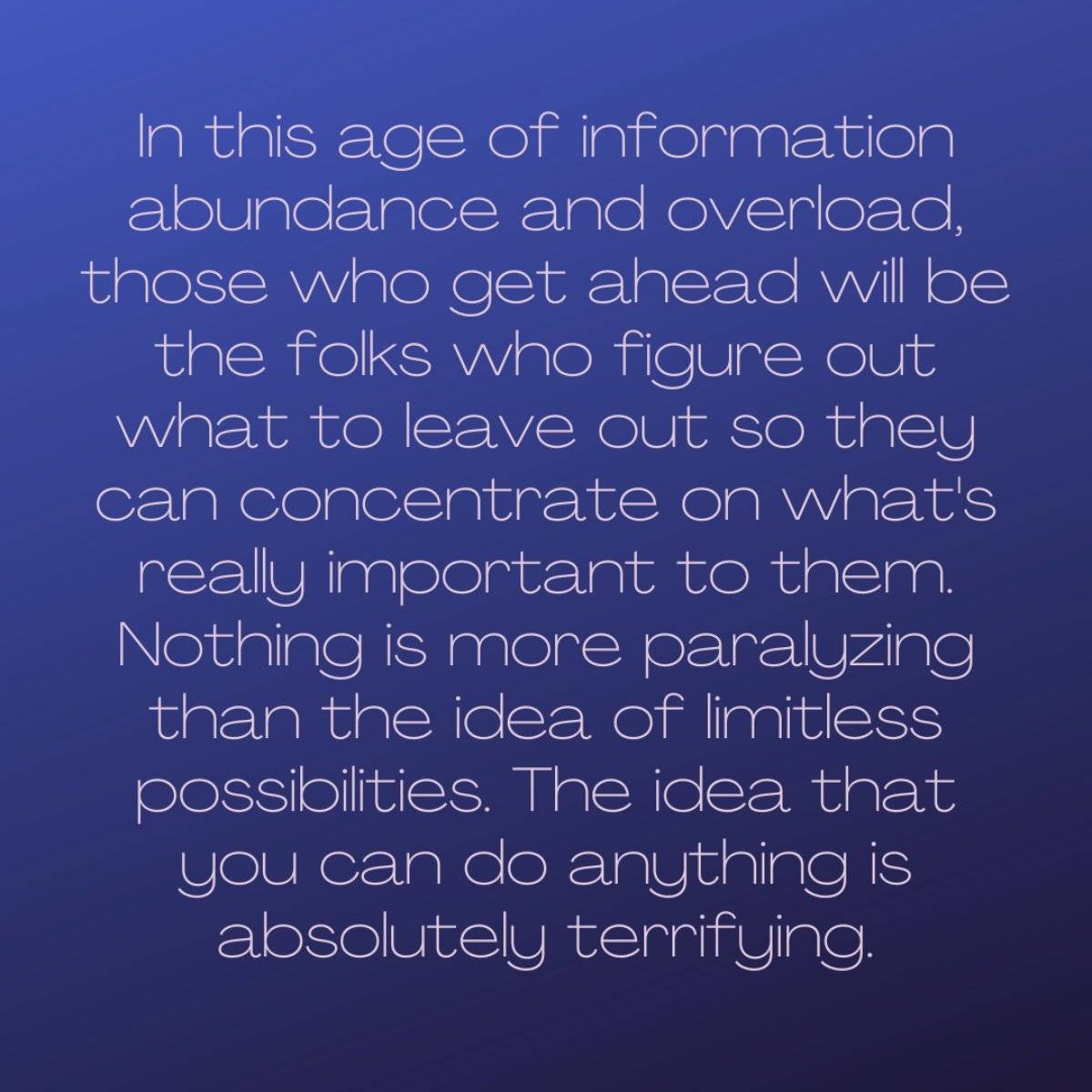
“In this age of information abundance and overload, those who get ahead will be the folks who figure out what to leave out so they can concentrate on what's really important to them. Nothing is more paralyzing than the idea of limitless possibilities. The idea that you can do anything is absolutely terrifying.“
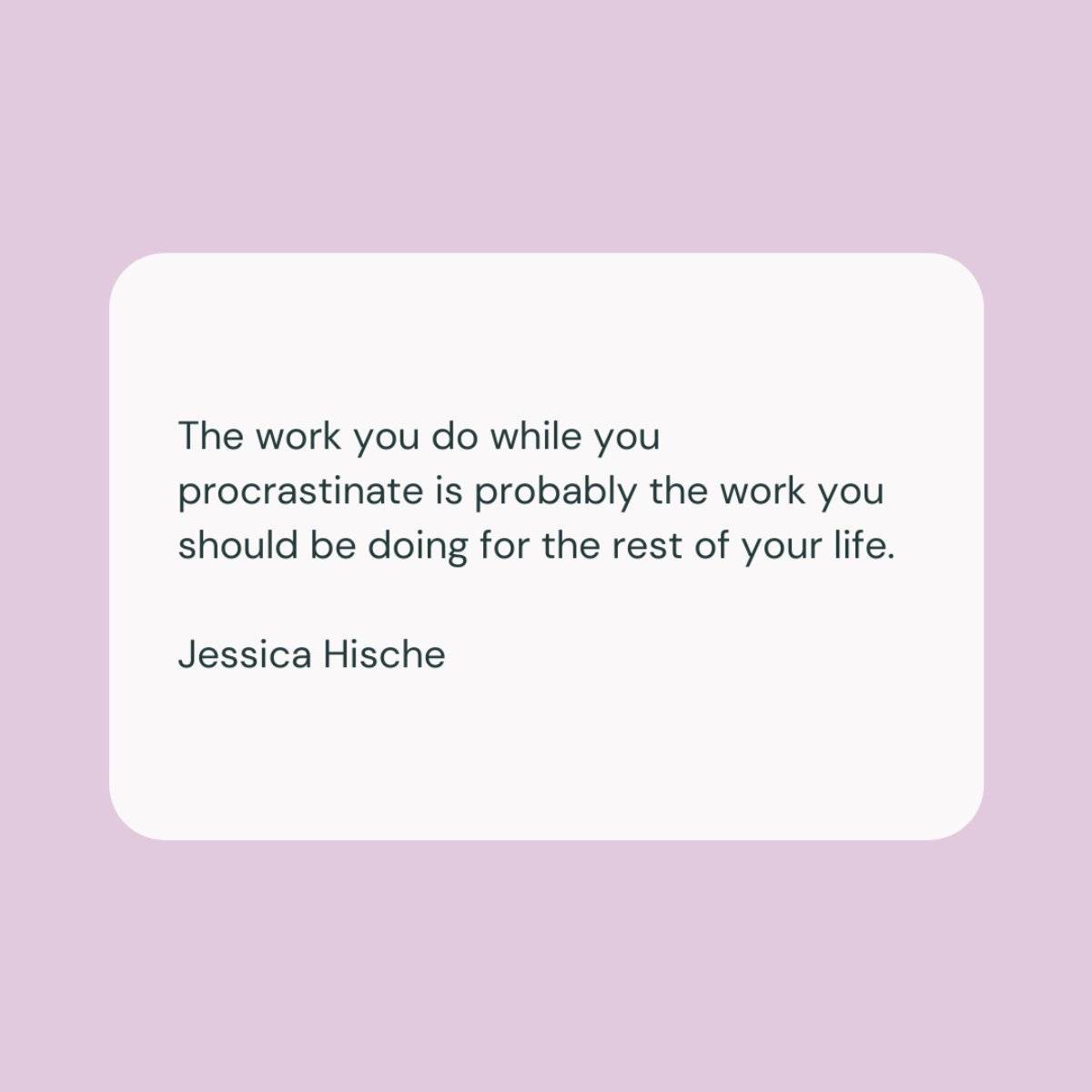
“The work you do while you procrastinate is probably the work you should be doing for the rest of your life.“
Jessica Hische, Graphic Designer
So it should have something to do with either Litsy, Goodreads, or Steepster then. Got it. 👍
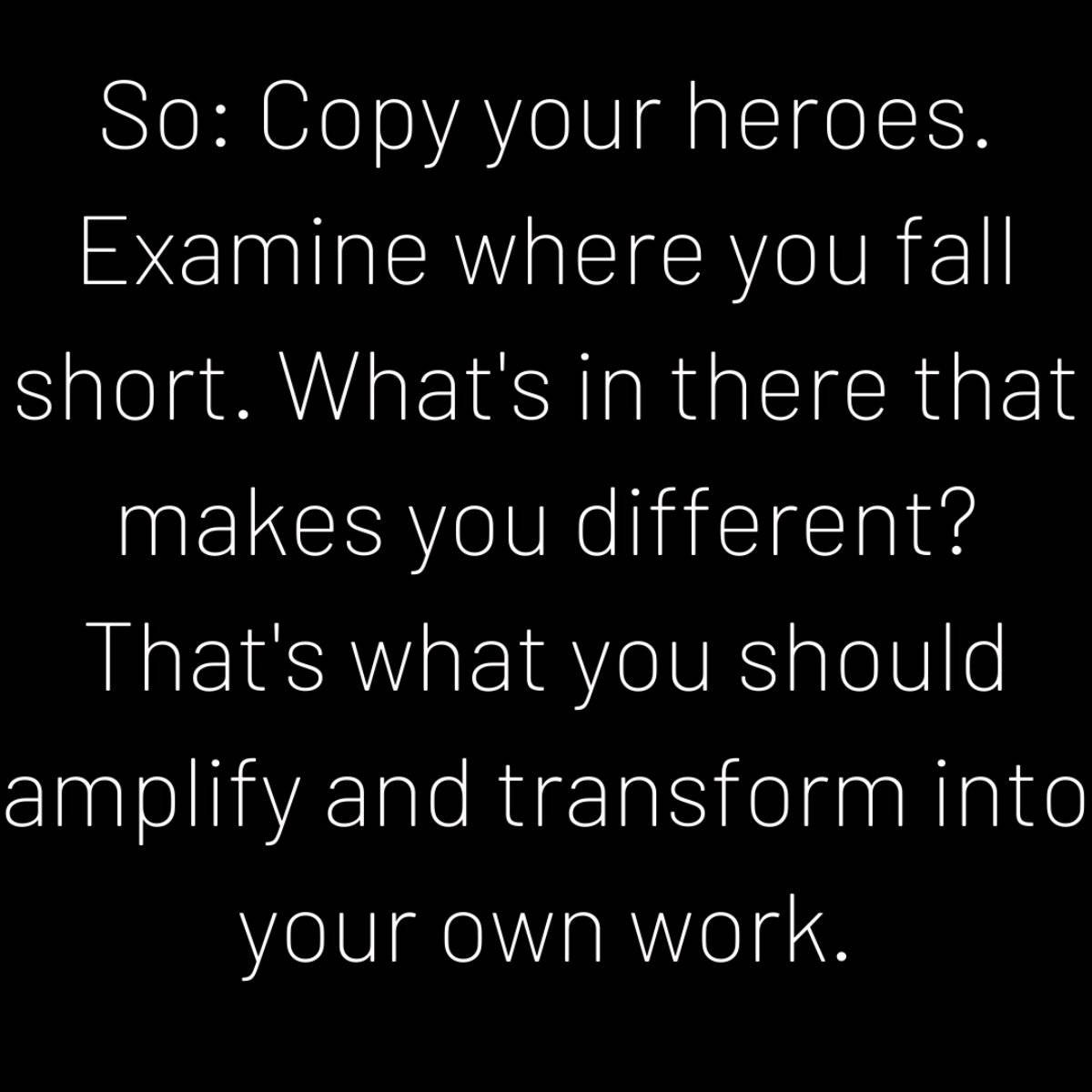
“So: Copy your heroes. Examine where you fall short. What's in there that makes you different? That's what you should amplify and transform into your own work.“
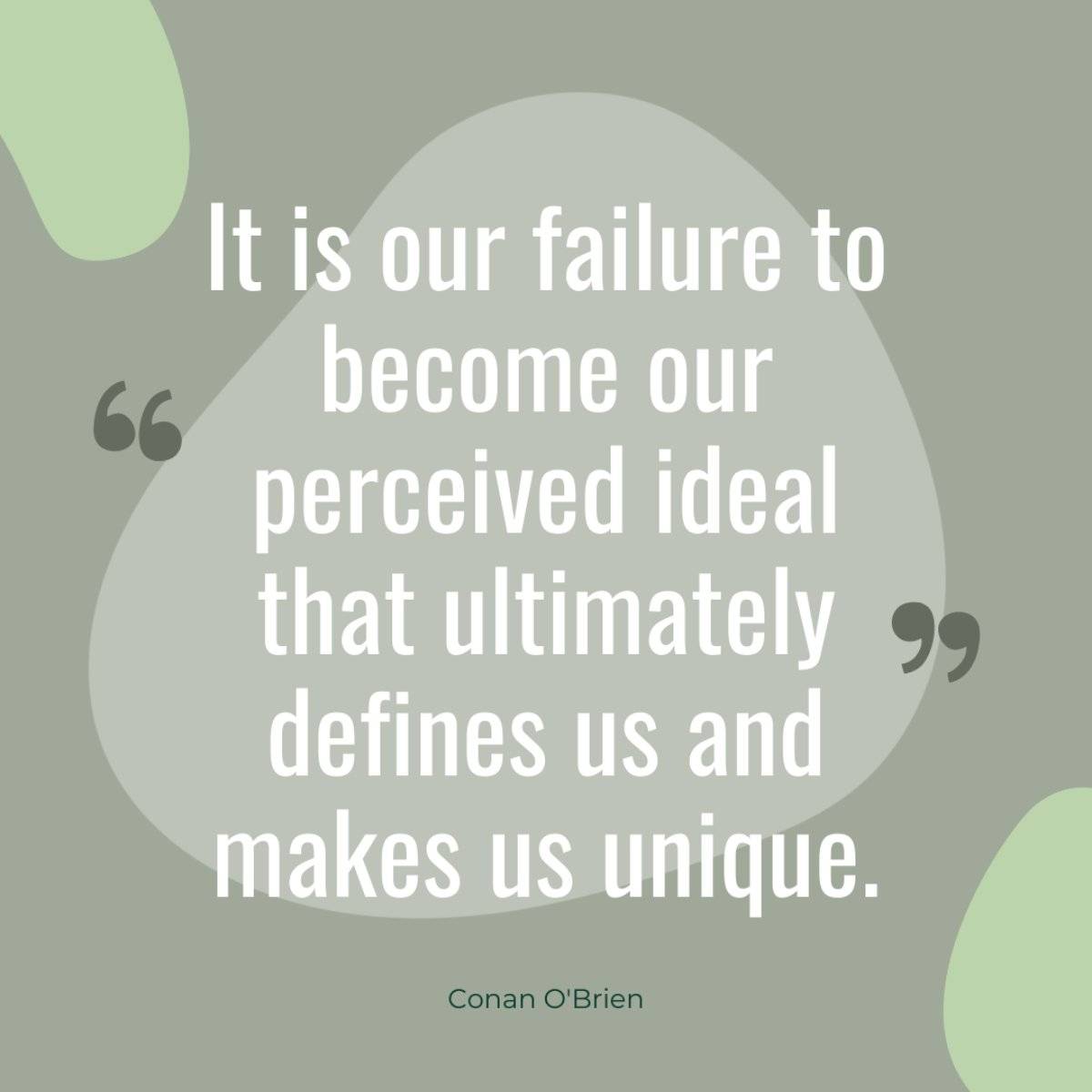
“It is our failure to become our perceived ideal that ultimately defines us and makes us unique.
From Conan O'Brien's Dartmouth Commencement Address on June 12, 2011.
https://www.mprnews.org/story/2011/06/14/conan-to-grads-your-dreams-will-change
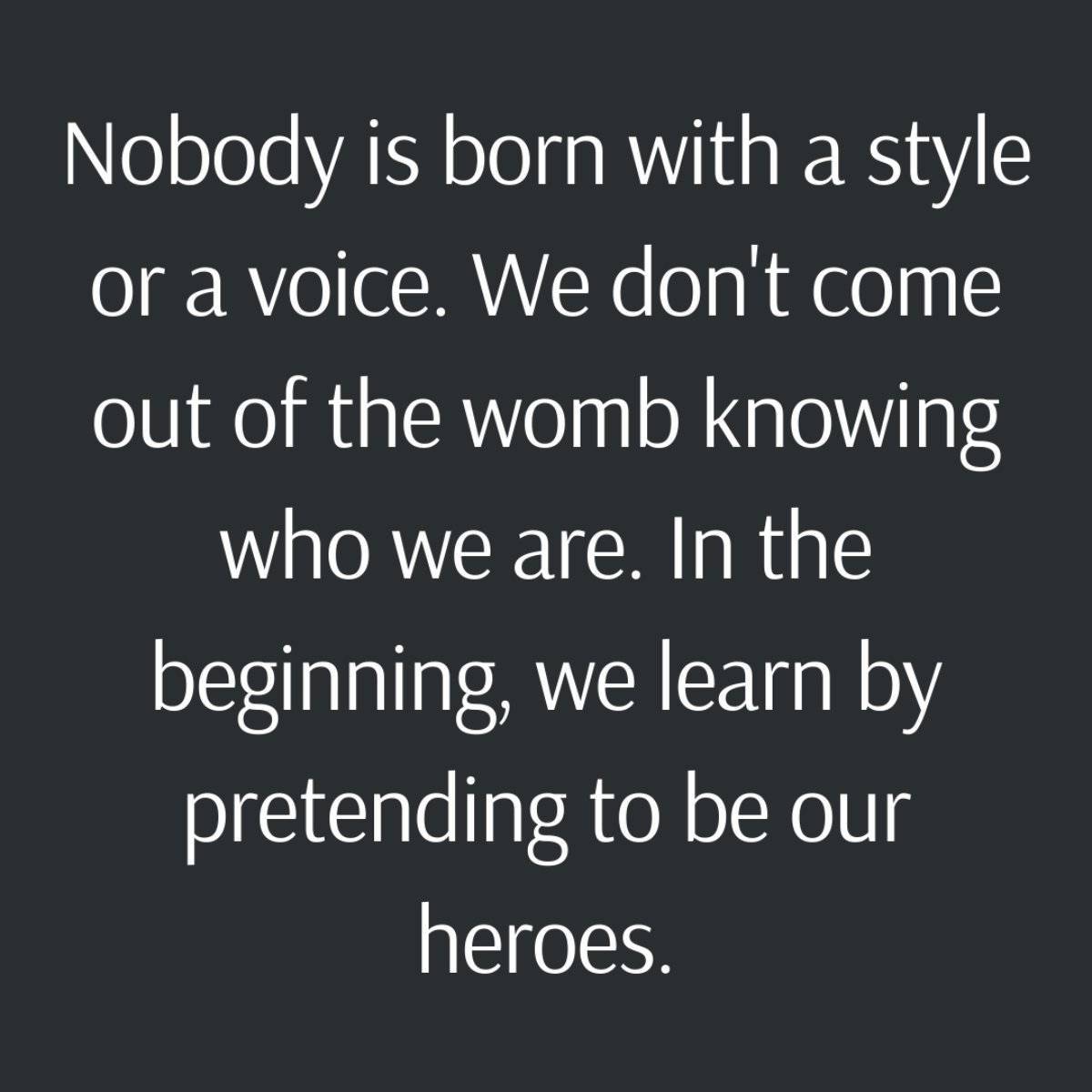
“Nobody is born with a style or a voice. We don't come out of the womb knowing who we are. In the beginning, we learn by pretending to be our heroes.“
EDIT: Just thinking - in the beginning, aren't our parents our first heroes? How much of this will influence the people we eventually become? How much of this “pretending“ is fixed in us during those early years? I'm reading a book on parenting and the self, so that's where my mind's at right now.
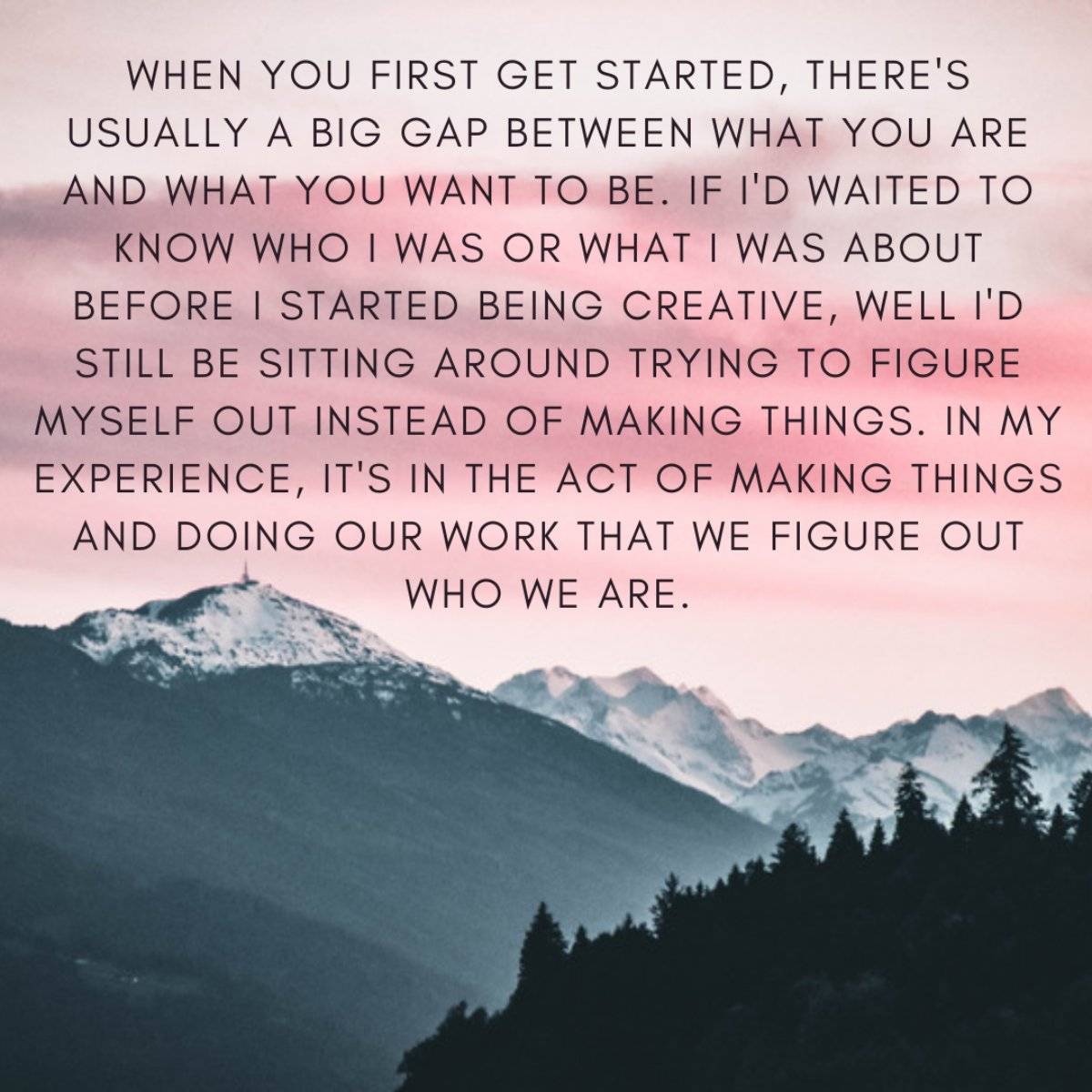
“When you first get started, there's usually a big gap between what you are and what you want to be. If I'd waited to know who I was or what I was about before I started being creative, well I'd still be sitting around trying to figure myself out instead of making things. In my experience, it's in the act of making things and doing our work that we figure out who we are.“
I especially love that last line. Really trying to take this book to heart.
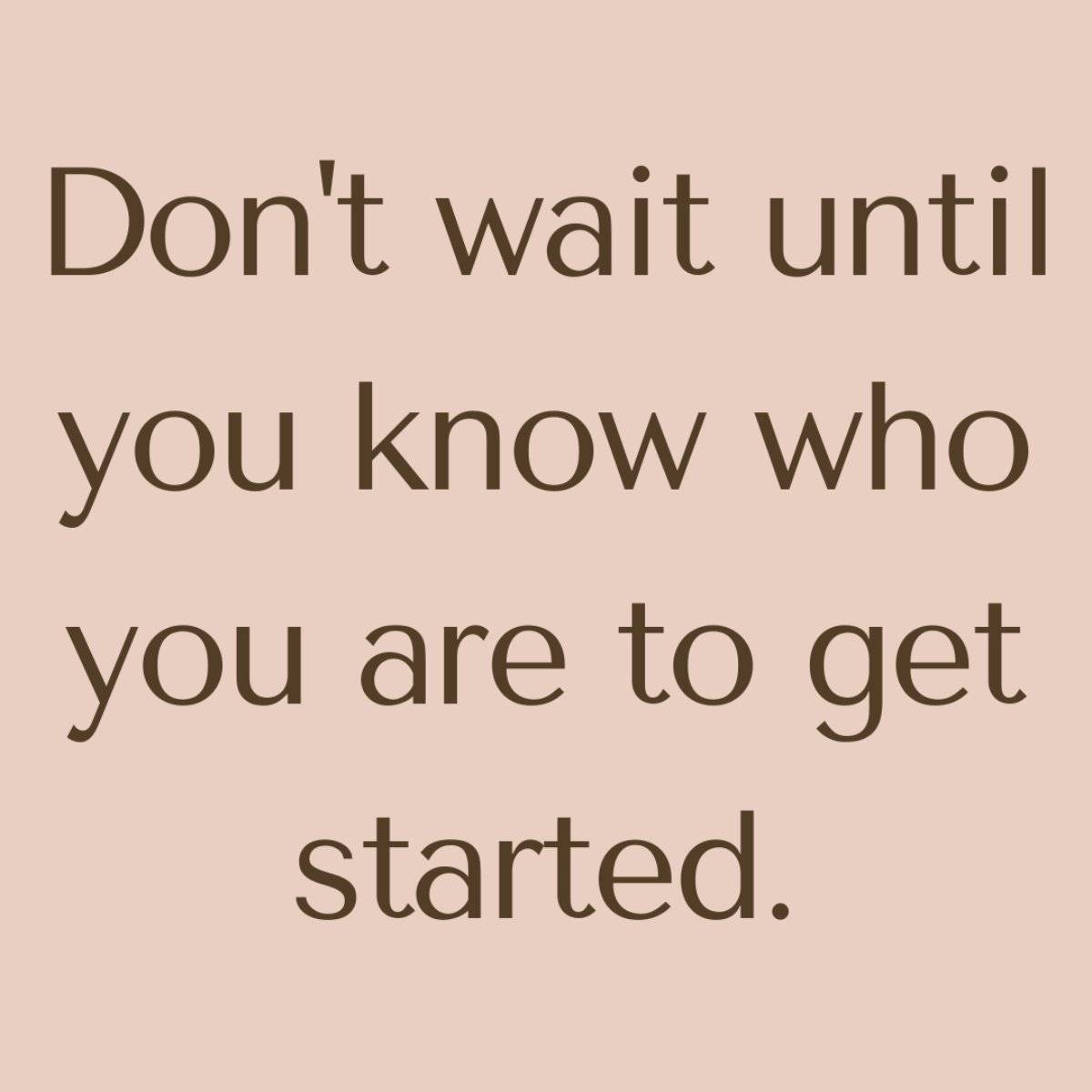
“Don't wait until you know who you are to get started.“
I'm 36 and I still don't really feel like I know who I am. Maybe that's why I haven't actually started anything, lol. Someone send self-help books. 📚
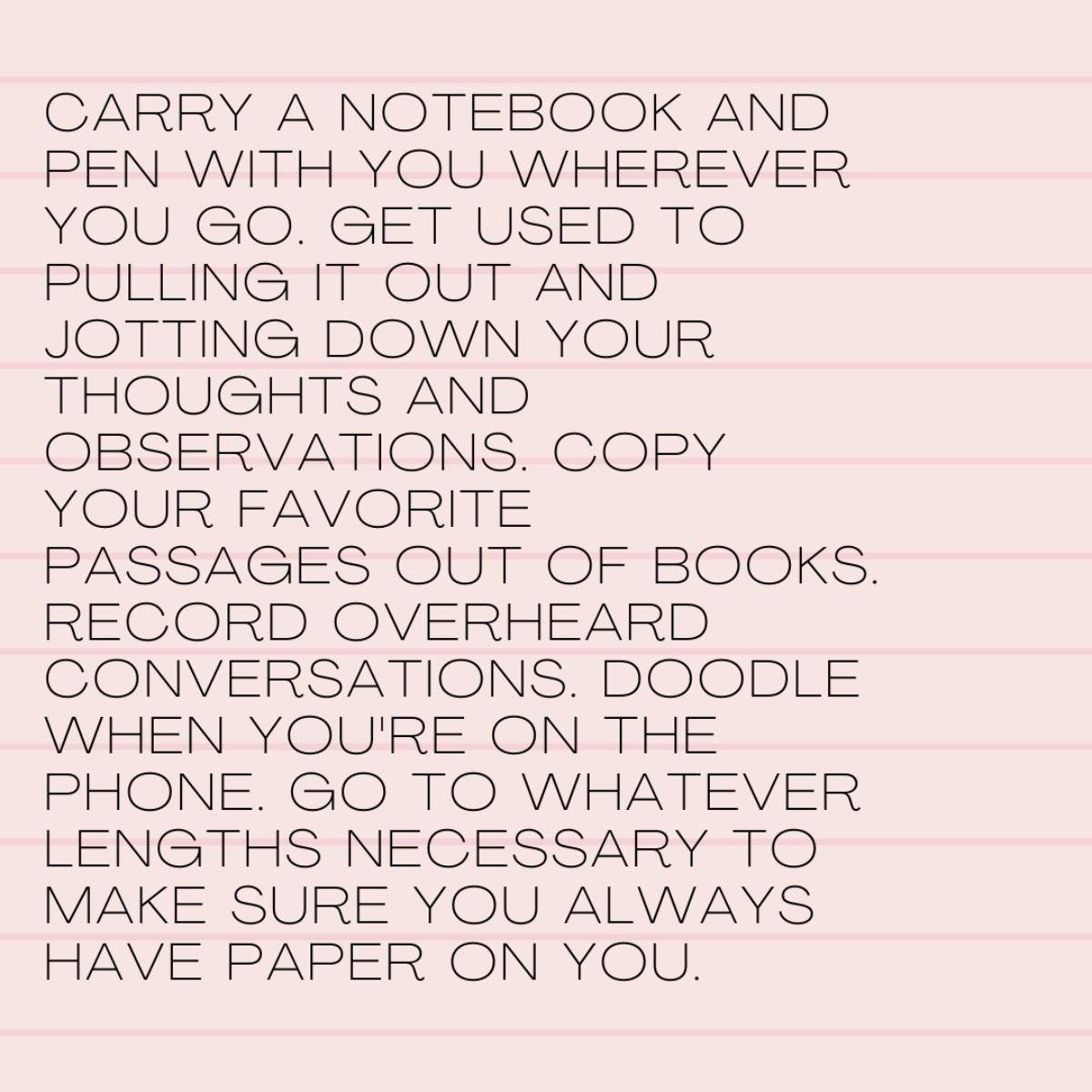
“Carry a notebook and pen with you wherever you go. Get used to pulling it out and jotting down your thoughts and observations. Copy your favorite passages out of books. Record overheard conversations. Doodle when you're on the phone. Go to whatever lengths necessary to make sure you always have paper on you.“
Love these practical tips! Of course this makes so much sense. With nearly everyone having a phone in their pocket now, it's even easier.
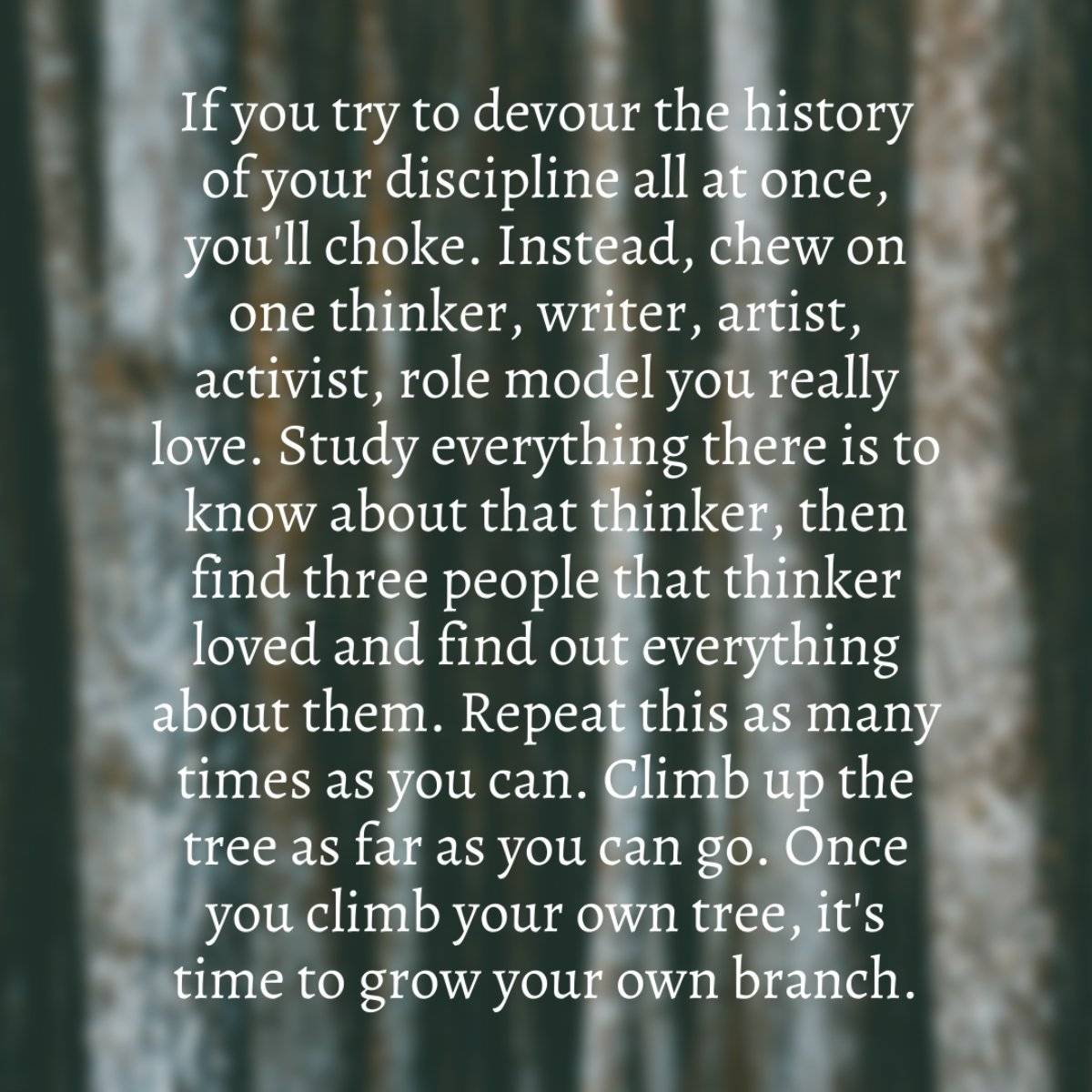
“If you try to devour the history of your discipline all at once, you'll choke. Instead, chew on one thinker, writer, artist, activist, role model you really love. Study everything there is to know about that thinker, then find three people that thinker loved and find out everything about them. Repeat this as many times as you can. Climb up the tree as far as you can go. Once you climb your own tree, it's time to grow your own branch.“
Doable. ✔
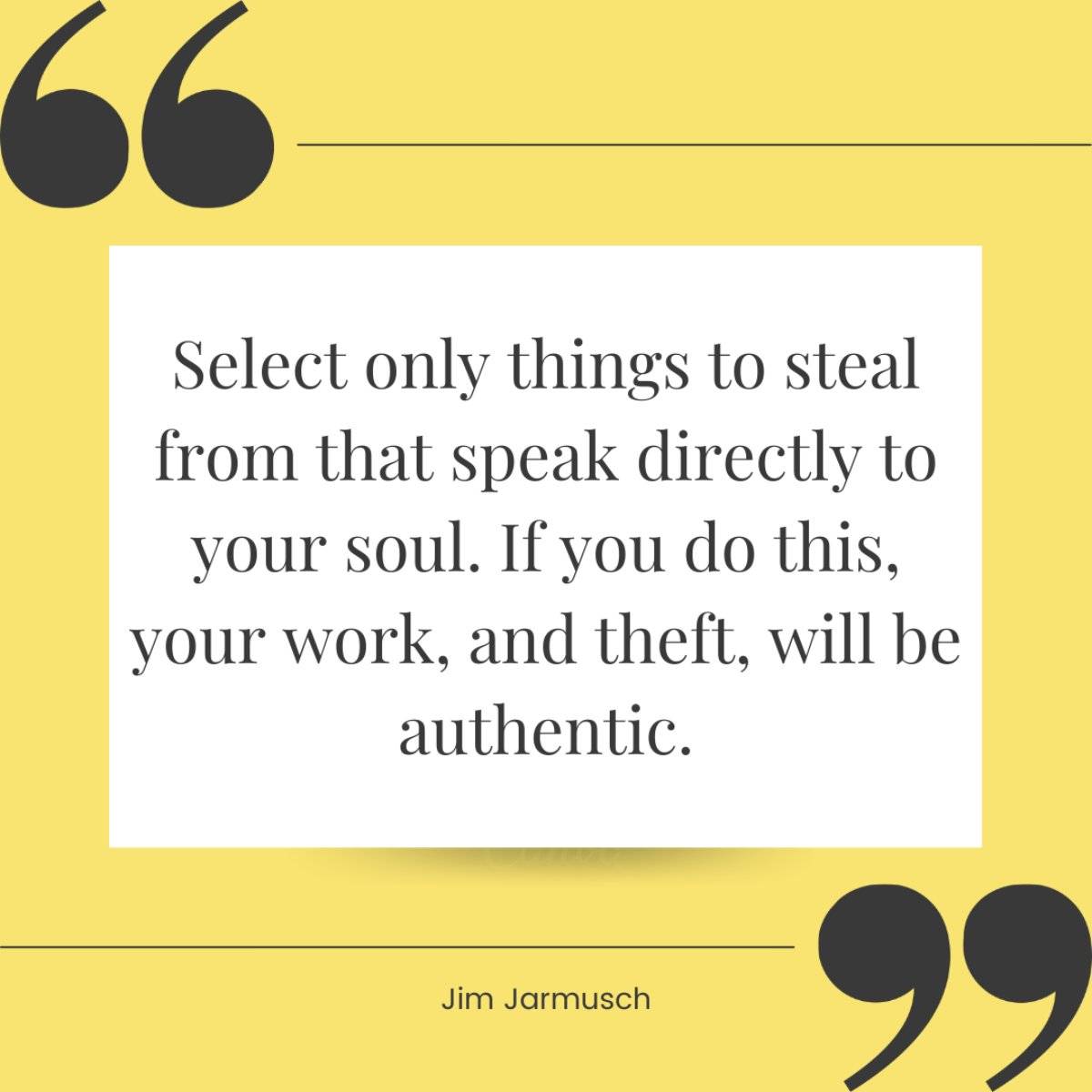
“Select only things to steal from that speak directly to your soul. If you do this, your work, and theft, will be authentic.“ - Jim Jarmusch
Much of this book consists of quotes from other people, such as the one here. I've pulled a few I like most. According to Goodreads, this is from an issue of MovieMaker Magazine, specifically Issue #53 - Winter, January 22, 2004. He goes on to say, “Authenticity is invaluable; originality is non-existent.“
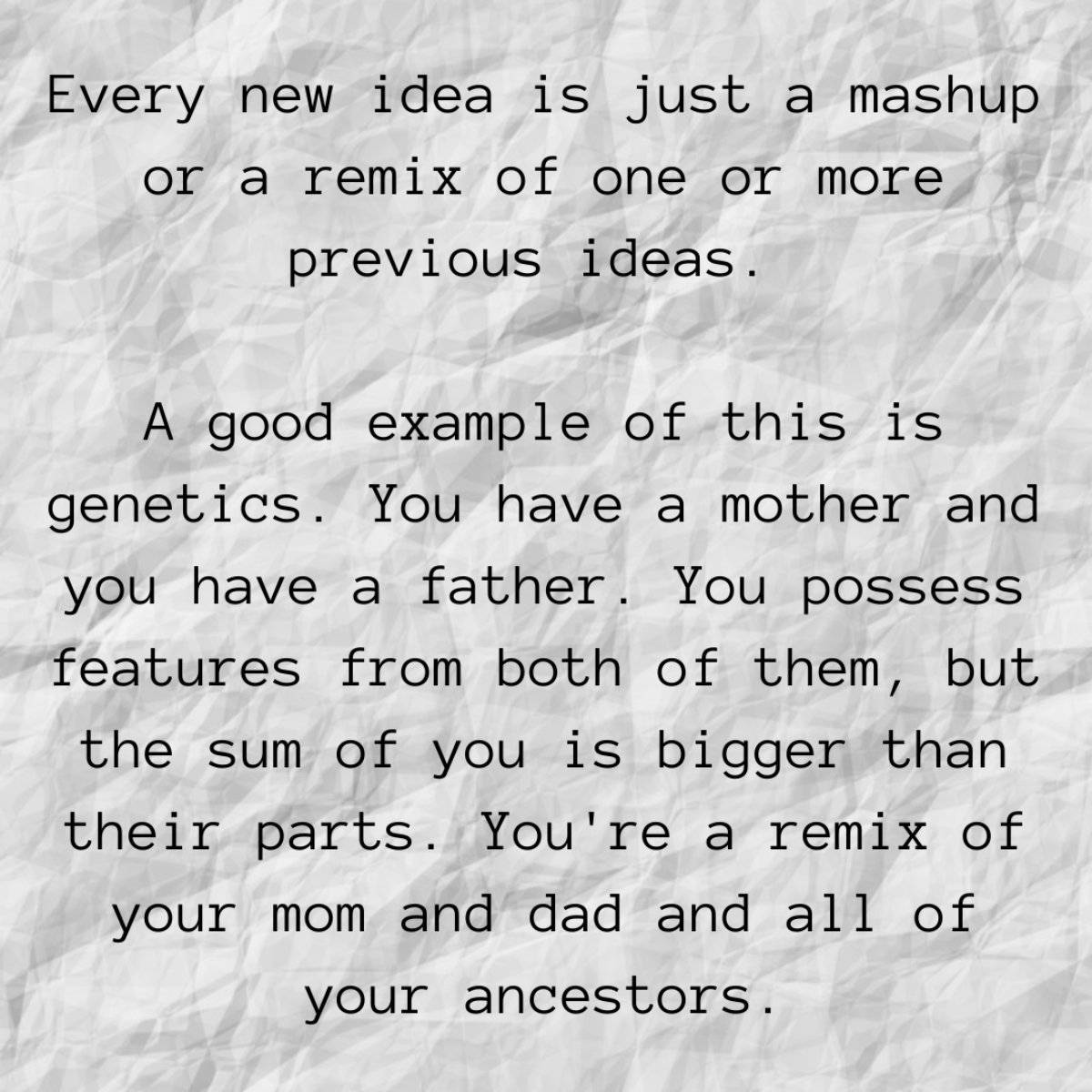
“Every new idea is just a mashup or a remix of one or more previous ideas. A good example of this is genetics. You have a mother and you have a father. You possess features from both of them, but the sum of you is bigger than their parts. You're a remix of your mom and dad and all of your ancestors.“
I've never thought about ideas in this way, but I love the comparison. Creative energy passed on, reworked, re-formed, and made new again and again.
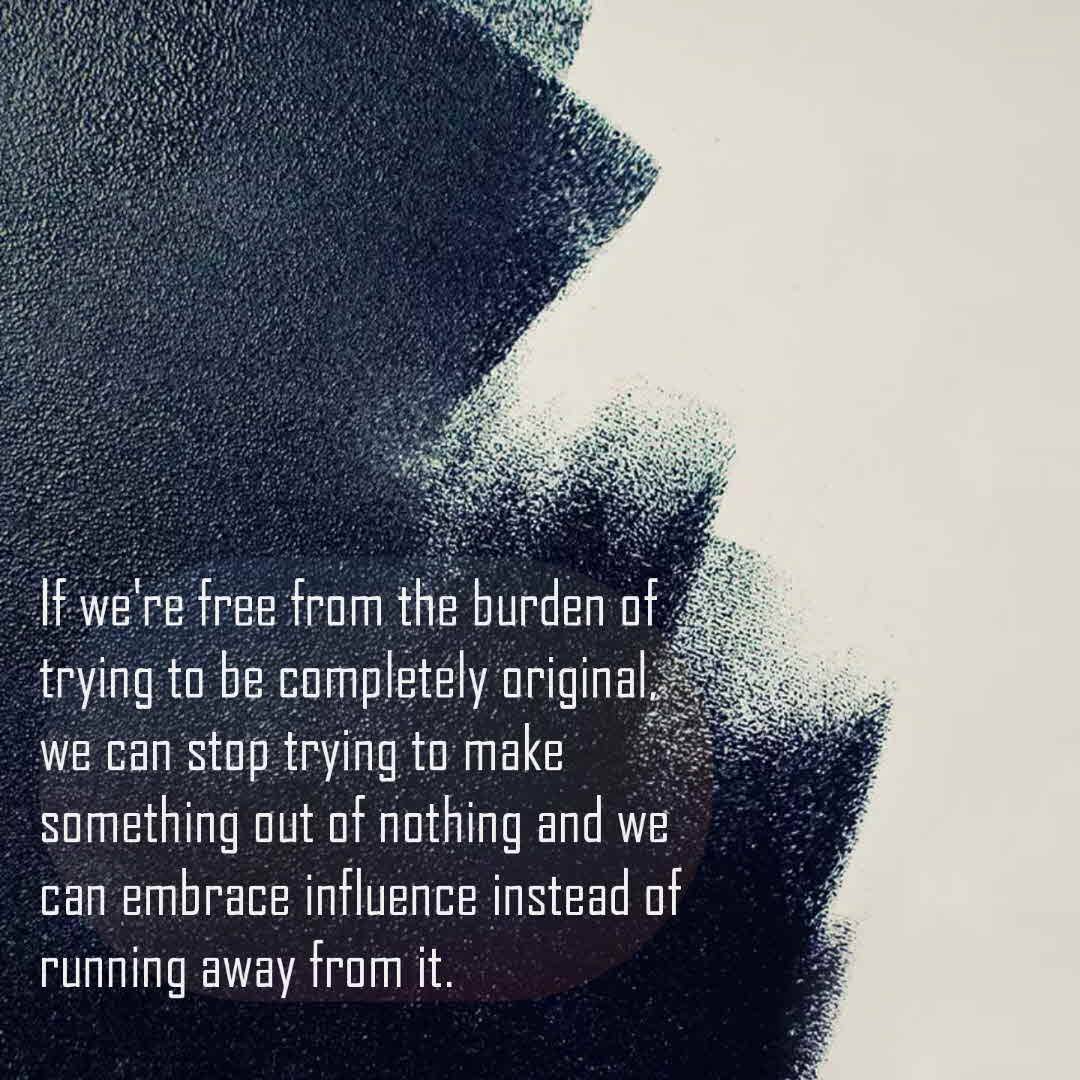
"If we're free from the burden of trying to be completely original, we can stop trying to make something out of nothing and we can embrace influence instead of running away from it."
So many feelings! Even as a child, I felt like anything I had to offer must be new to the world or else what is the point. It really is a great burden that we put on ourselves. What a relief to know that we can learn from others instead of trying to outsmart them.
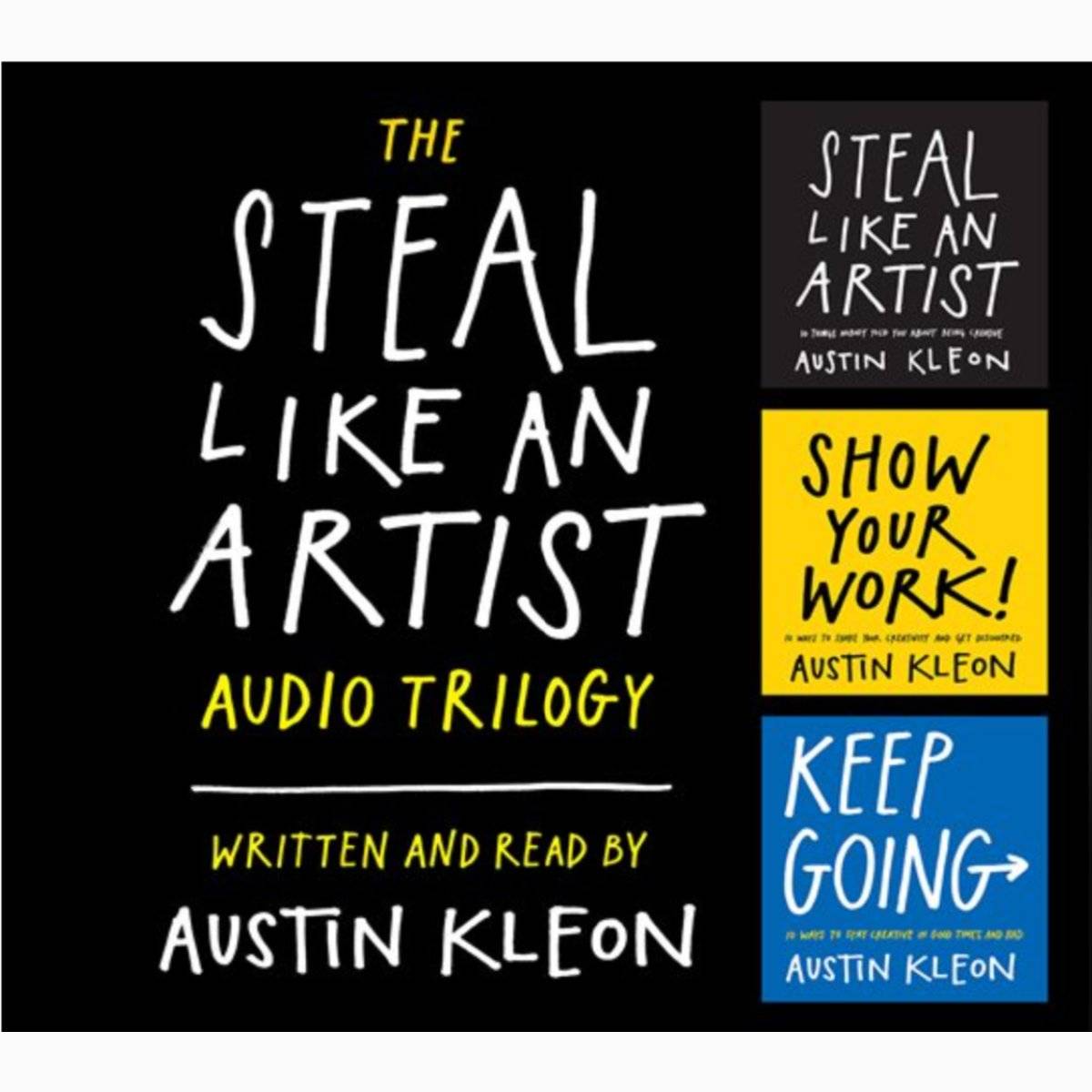
I'm only one chapter into the first book of the trilogy and I've had to pause the audiobook five times already to take notes. It looks like I'll be reading the ebooks next so that I can go back through and highlight every page. Apologies in advance for all the quotes that are about to overtake your feed.